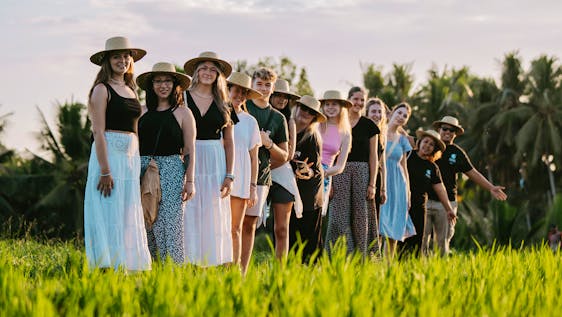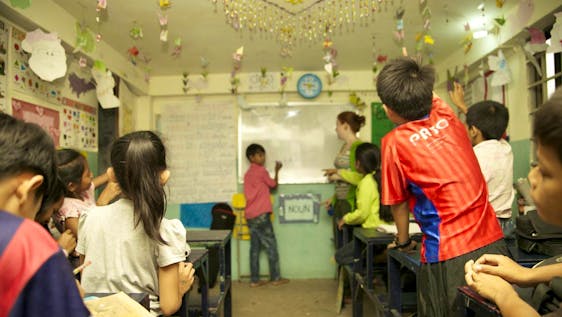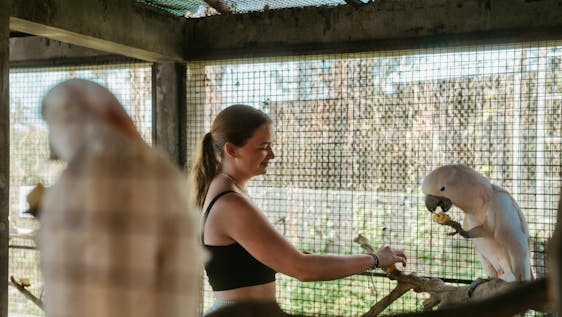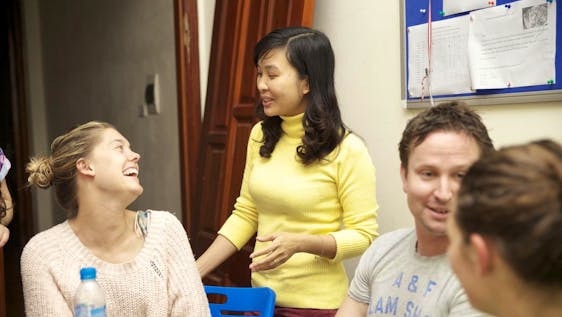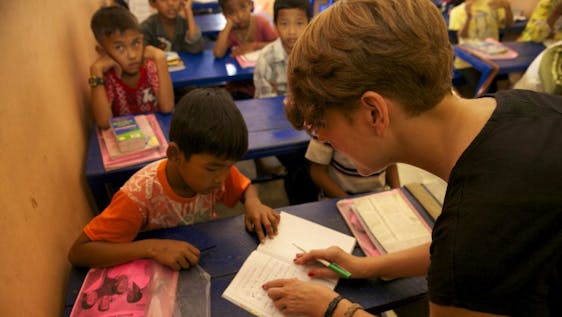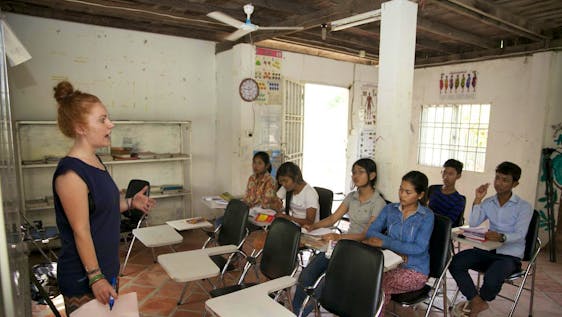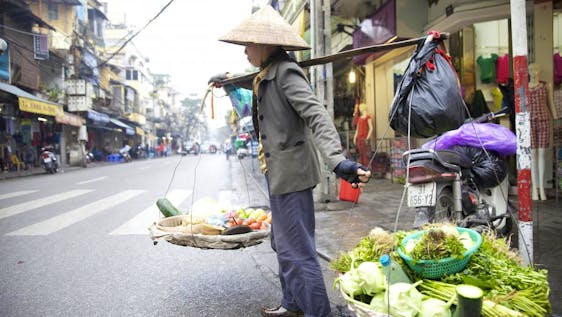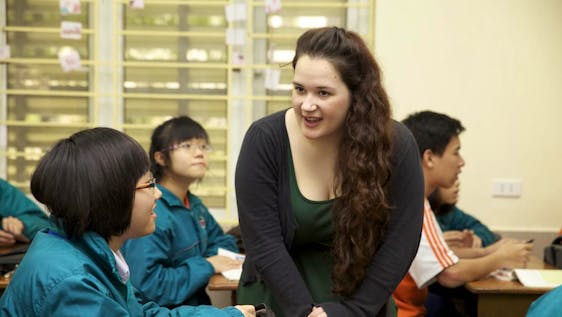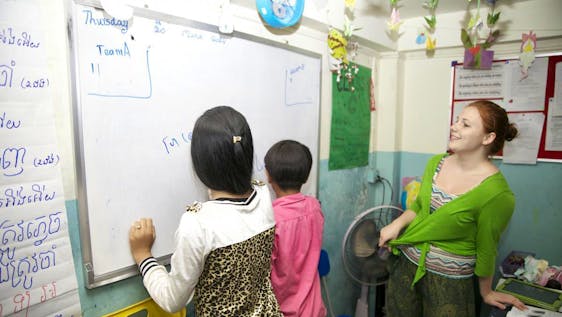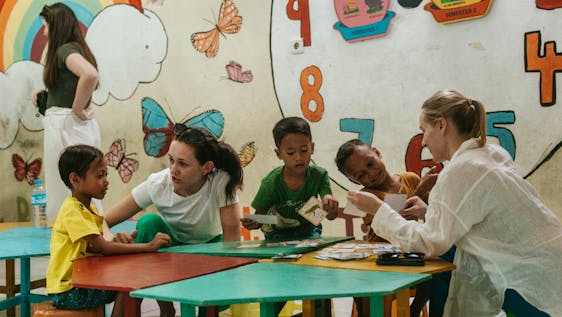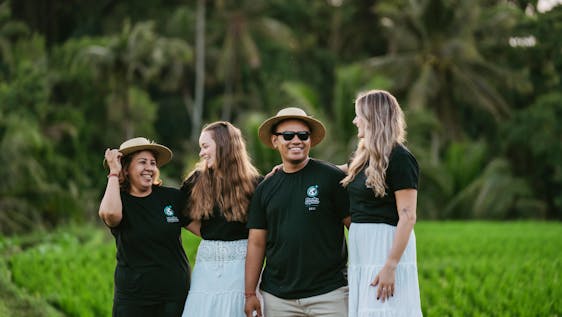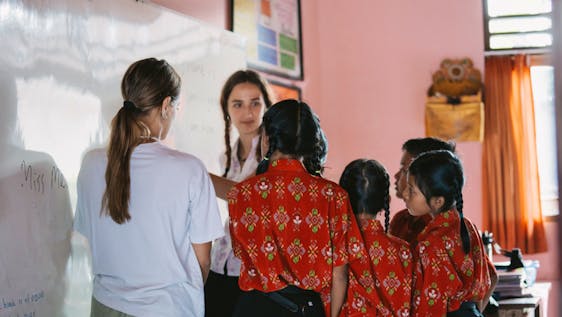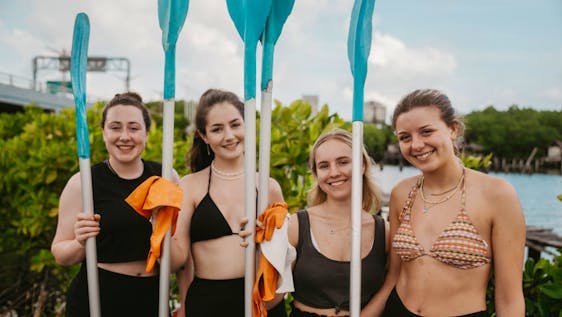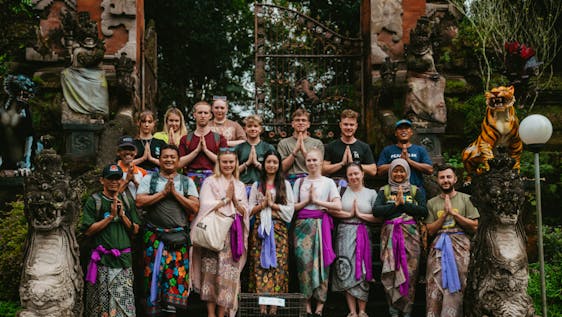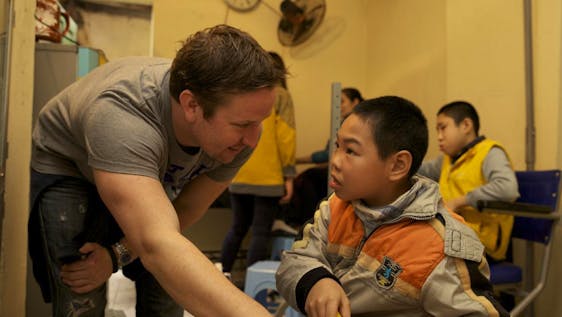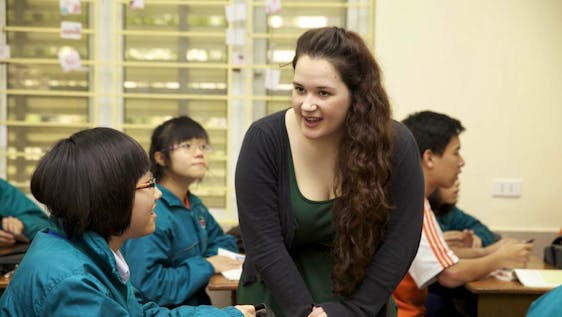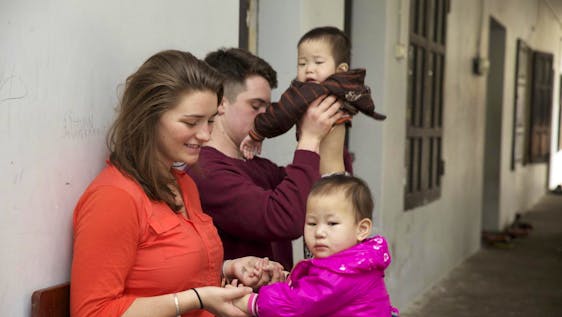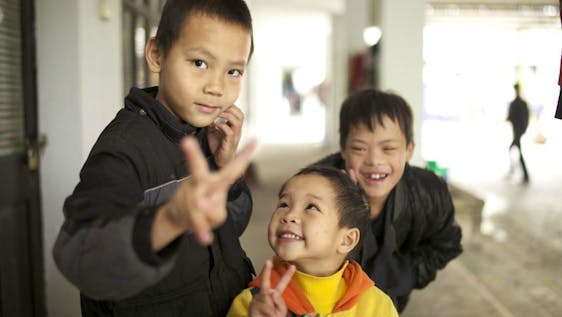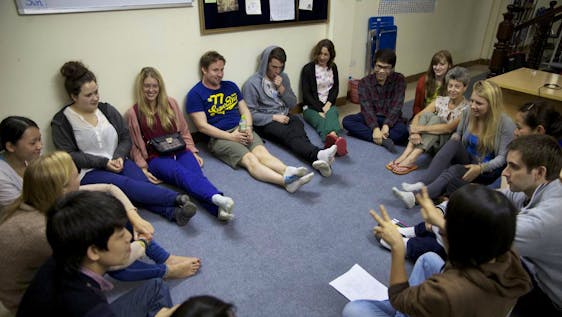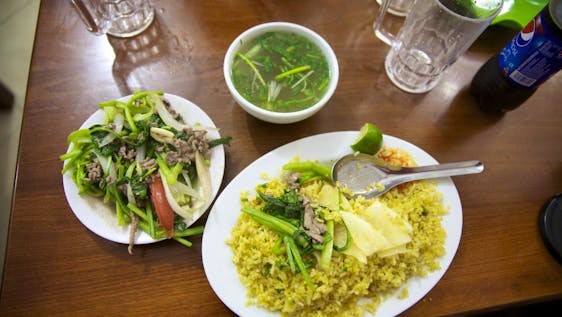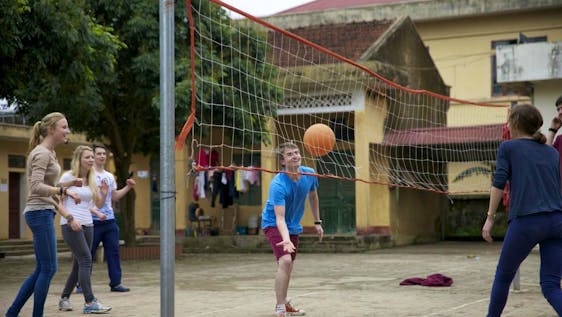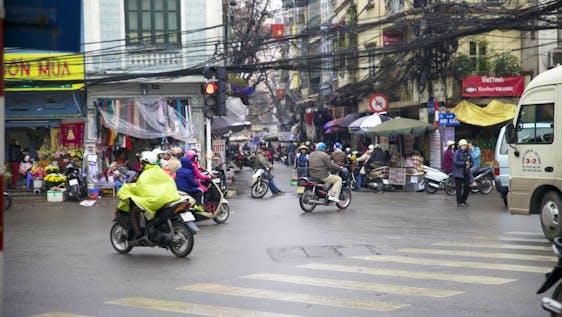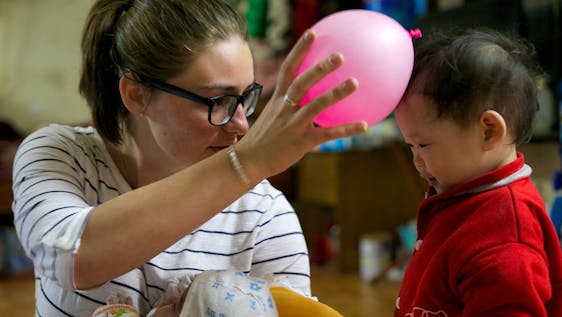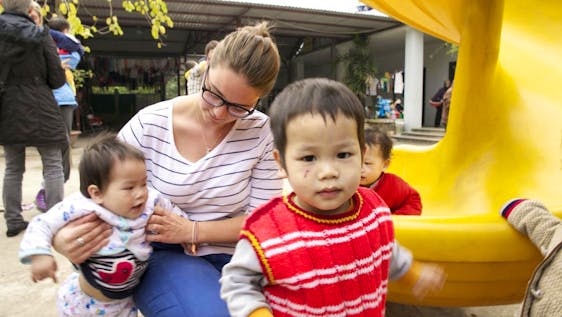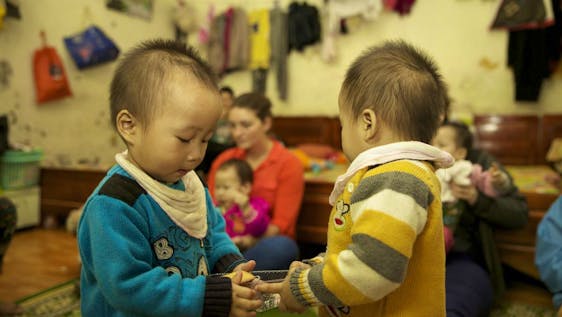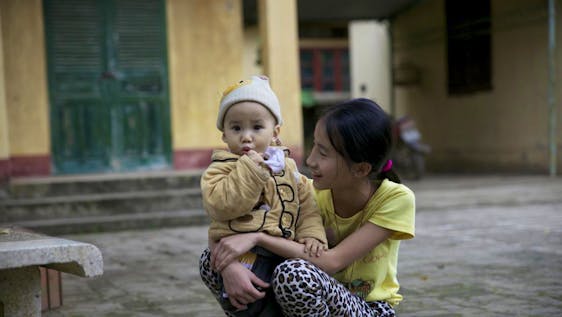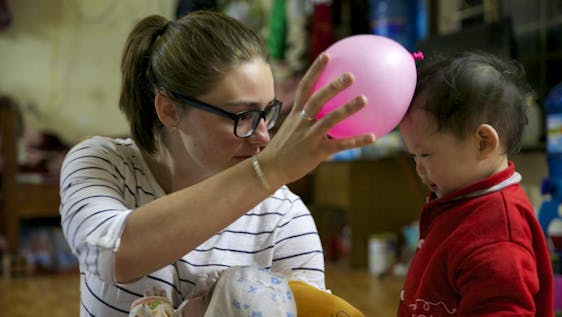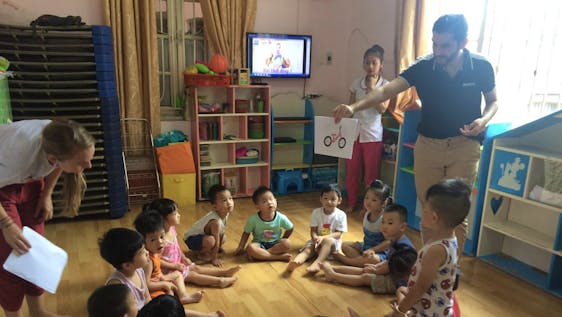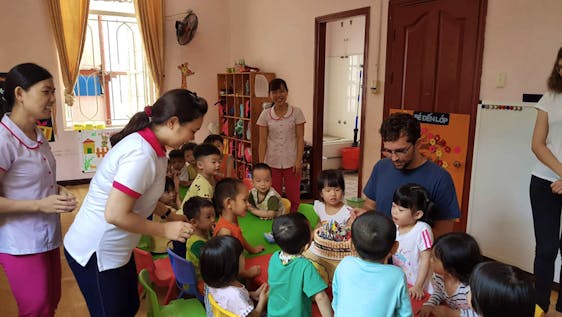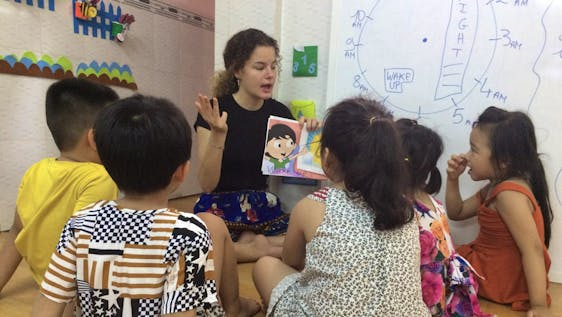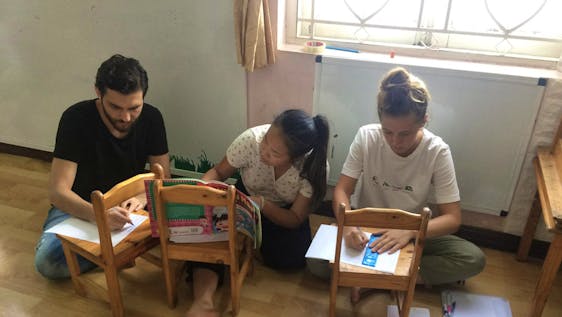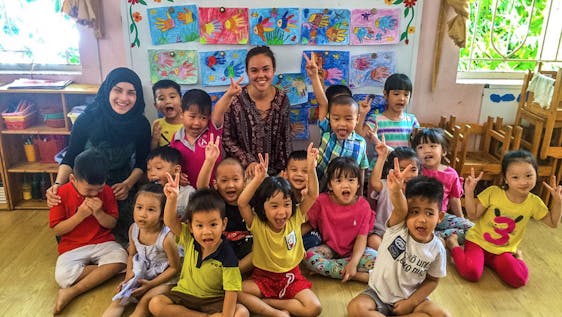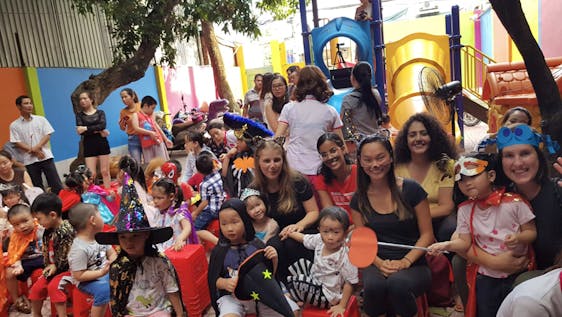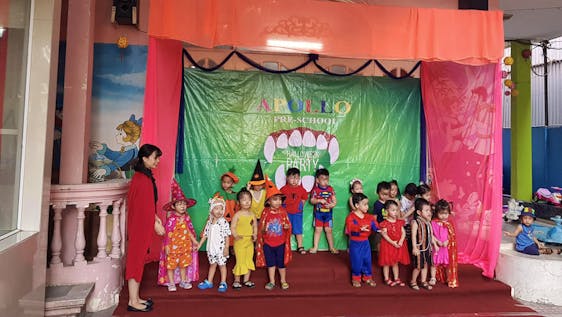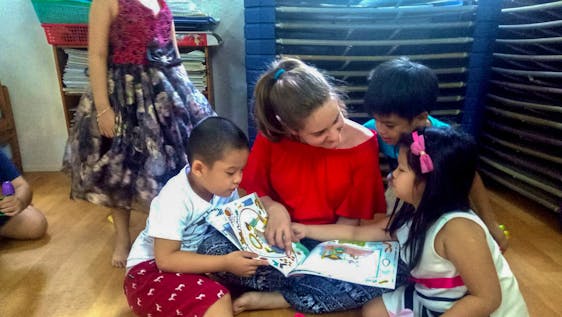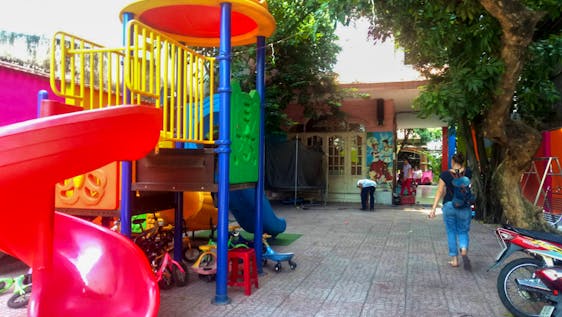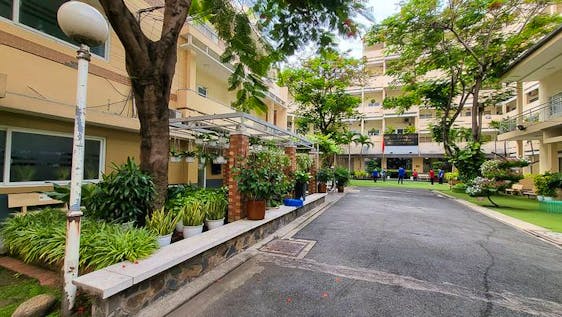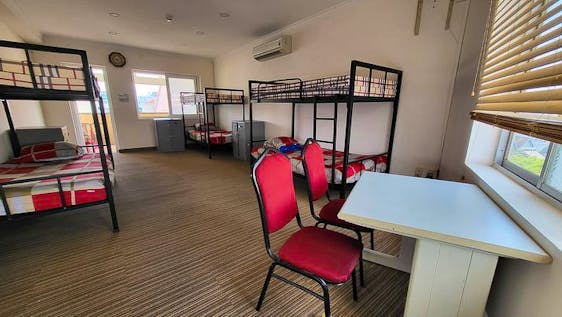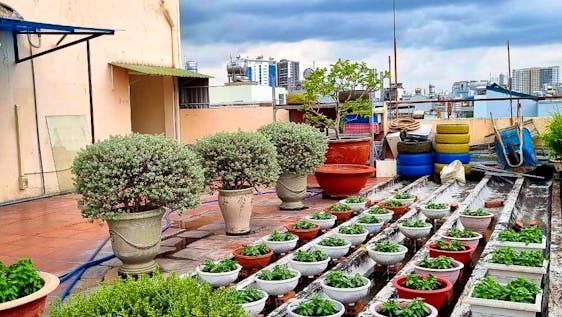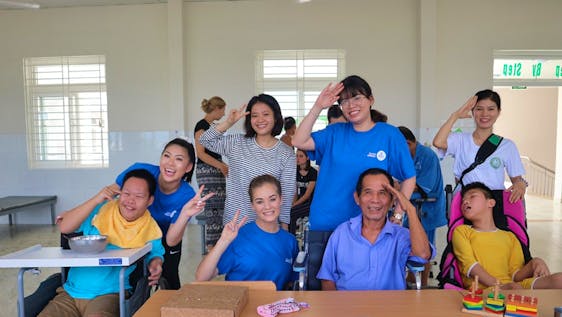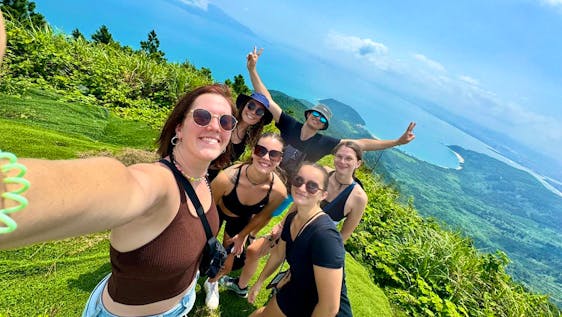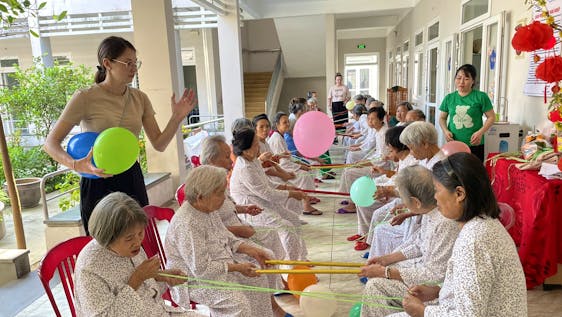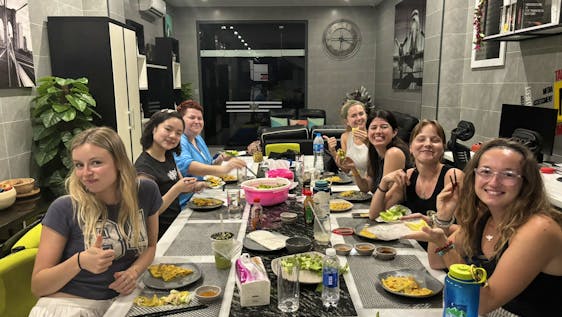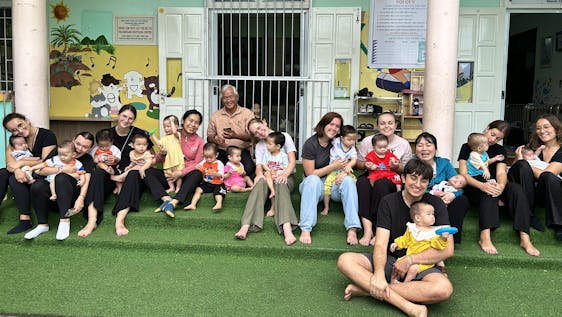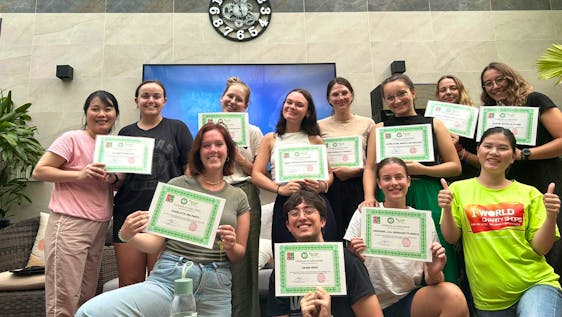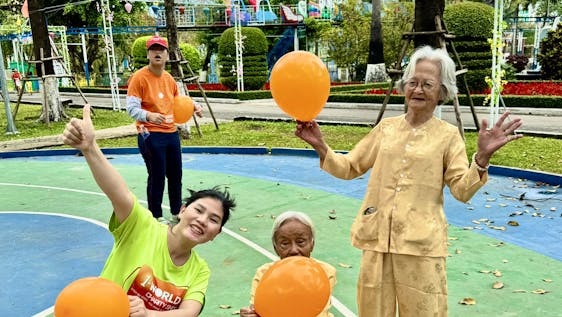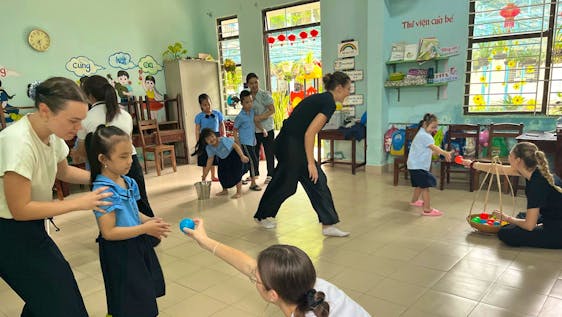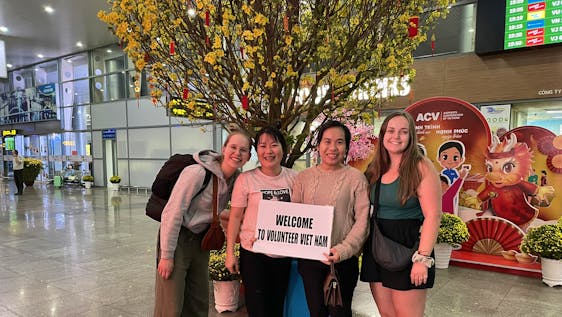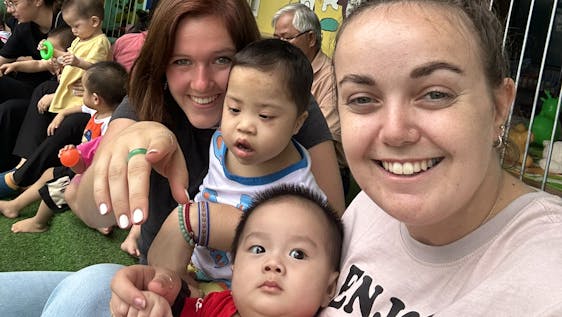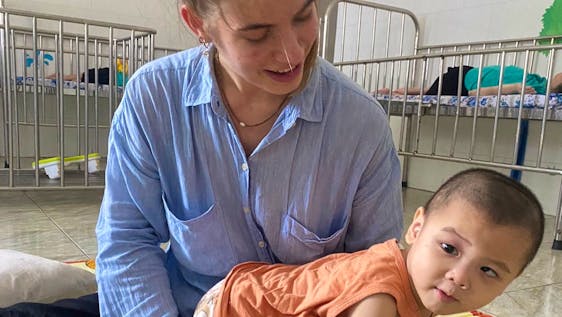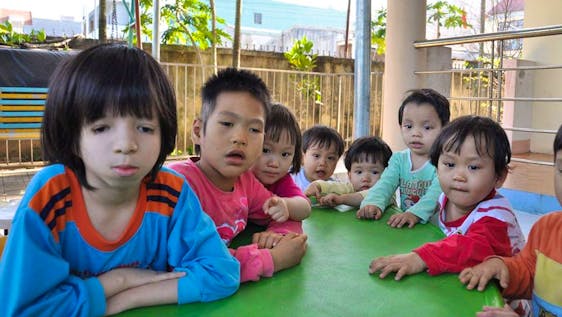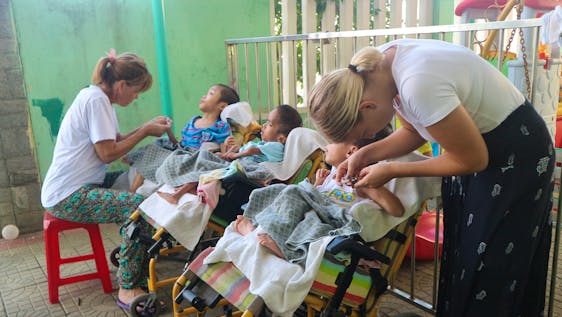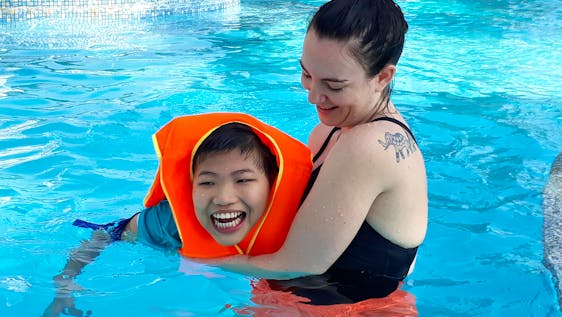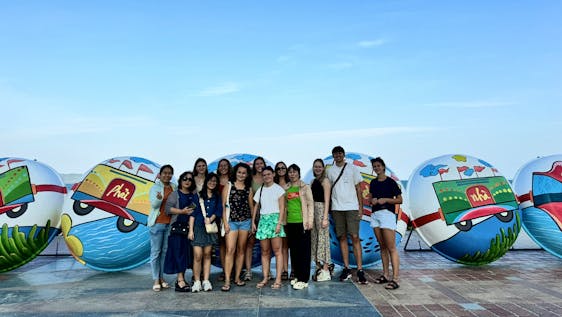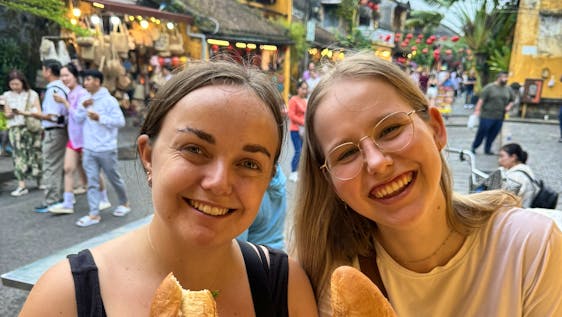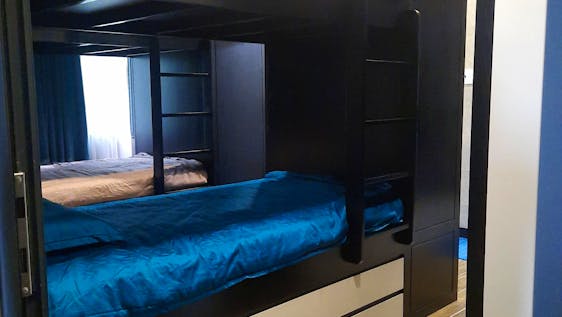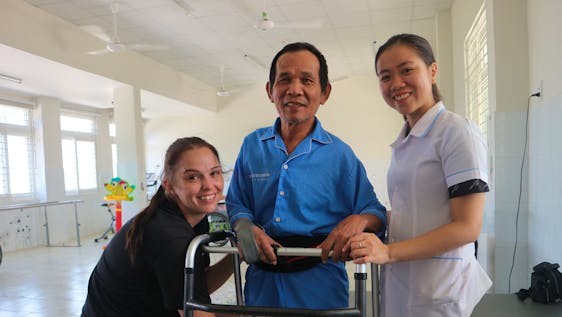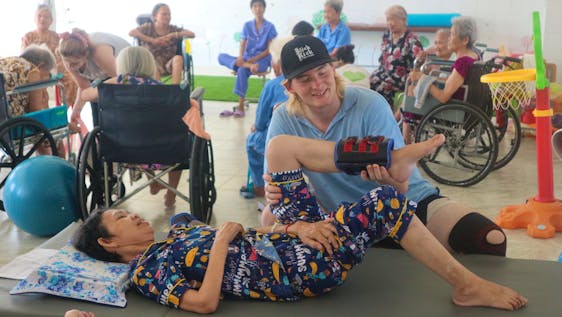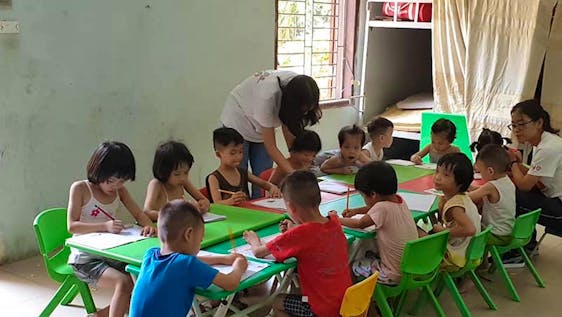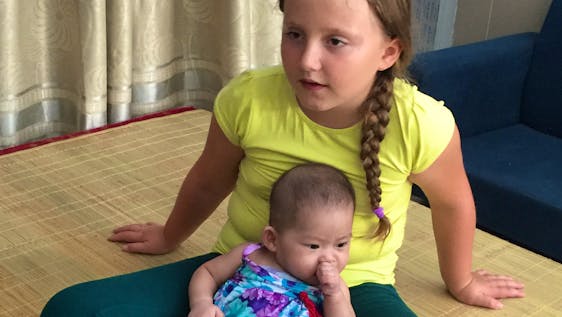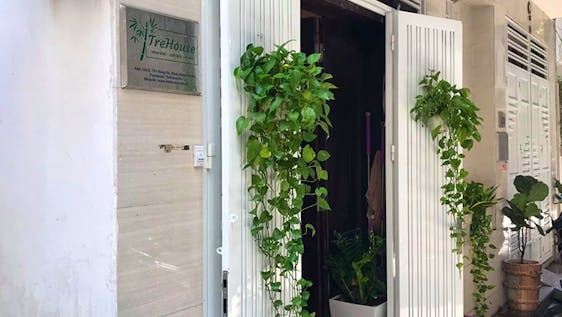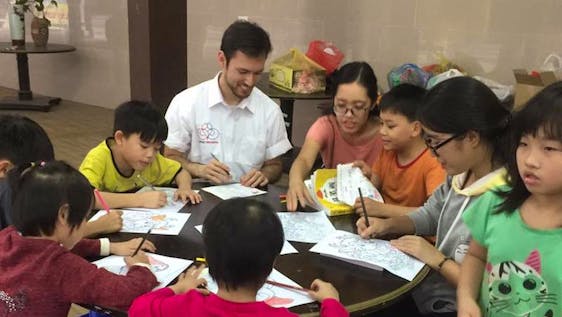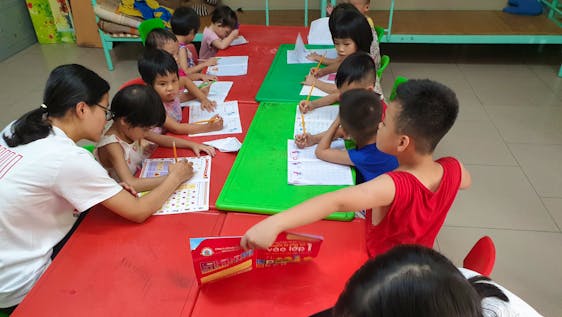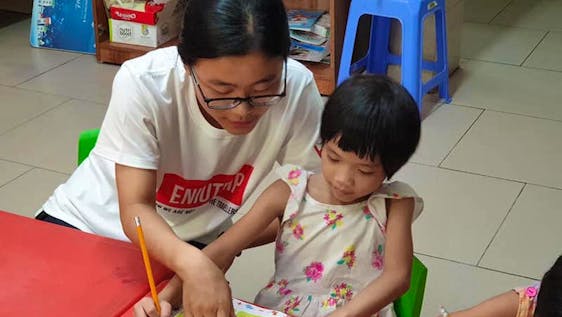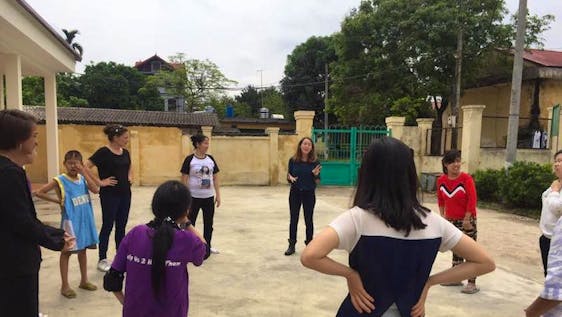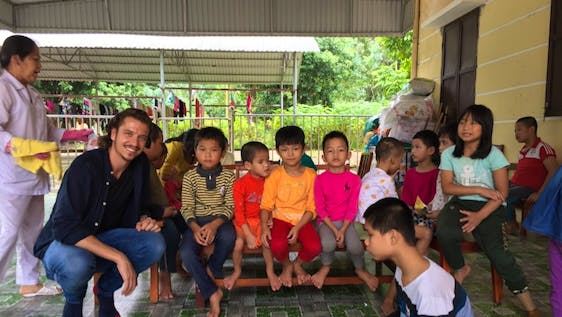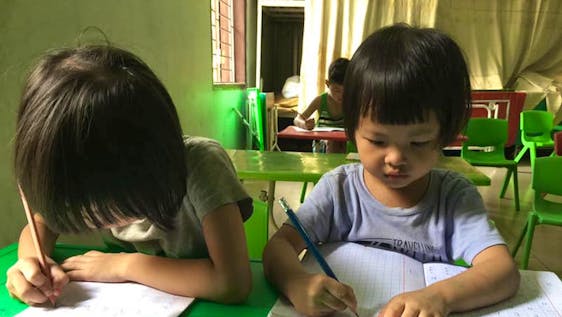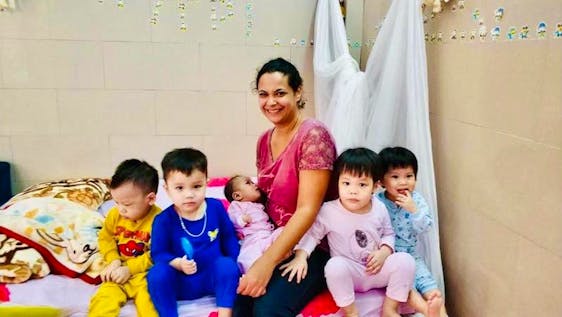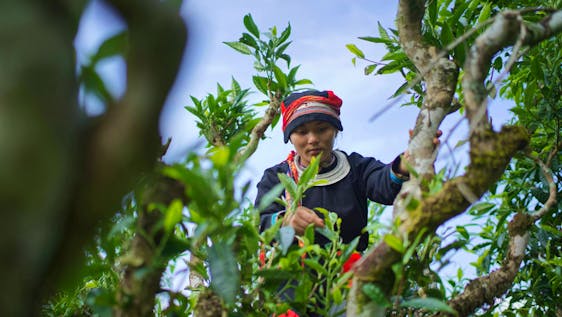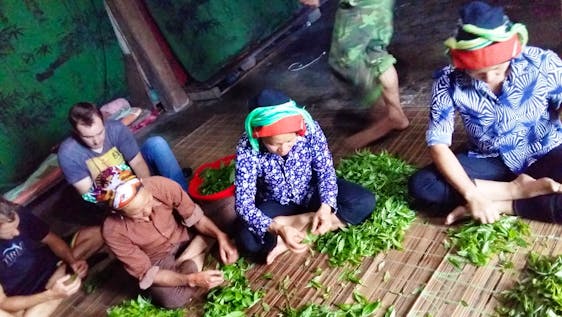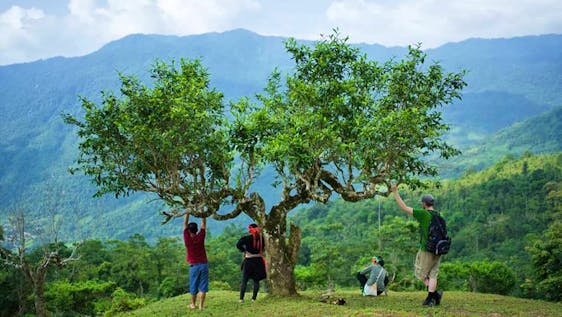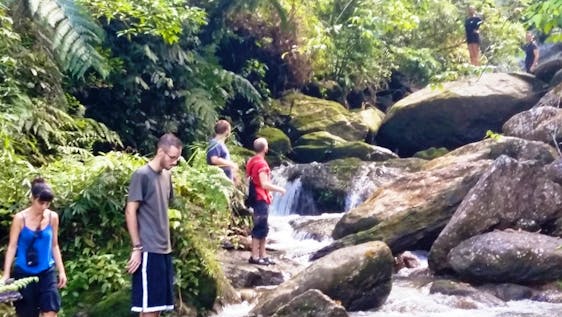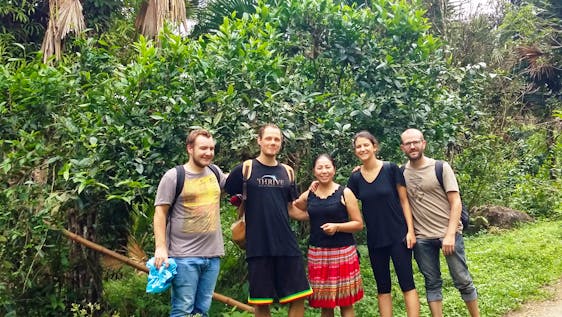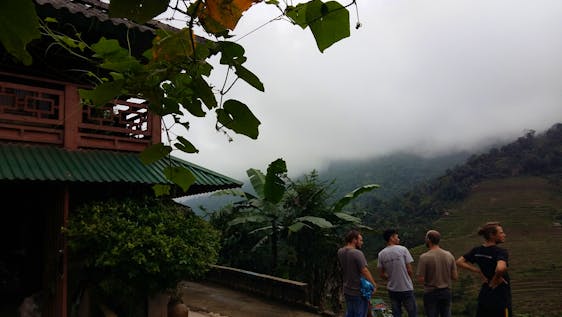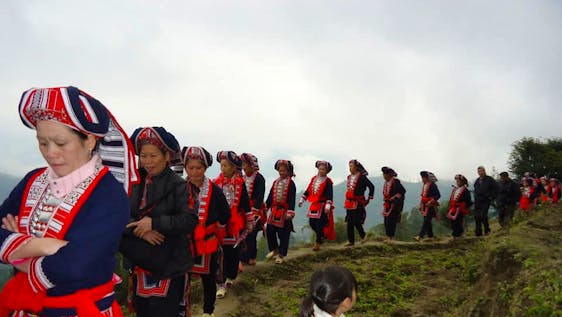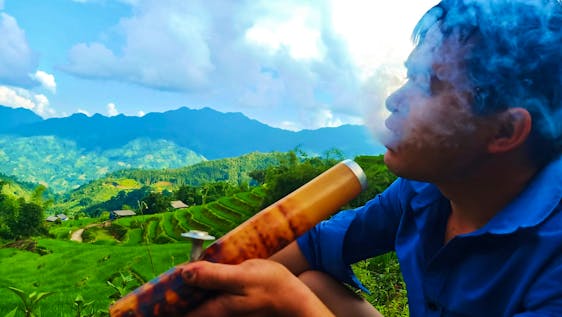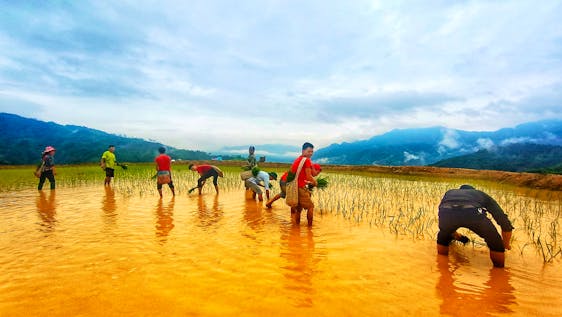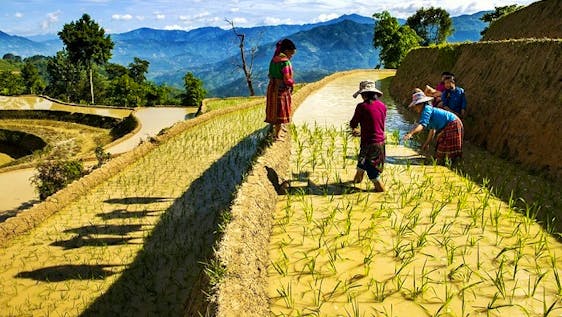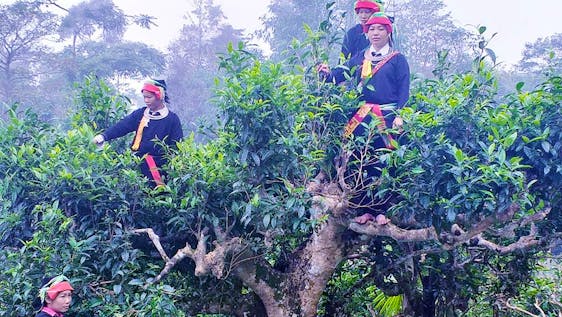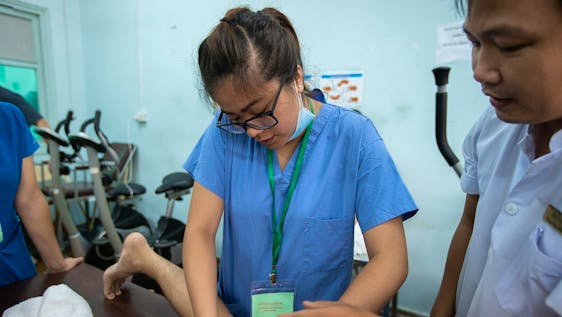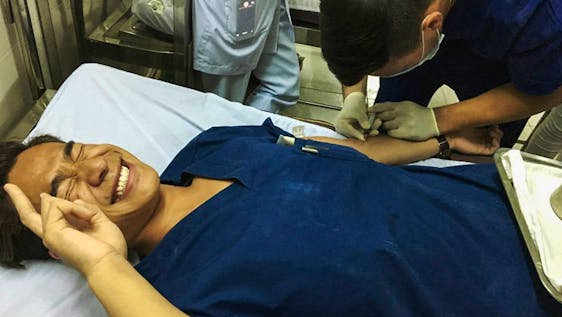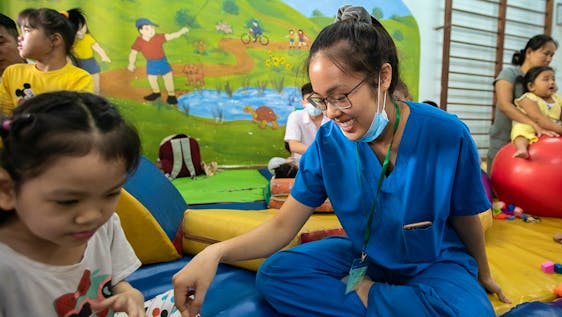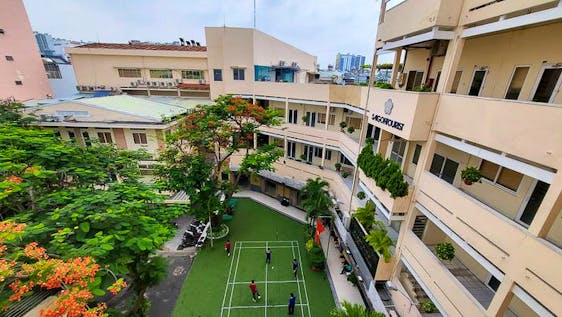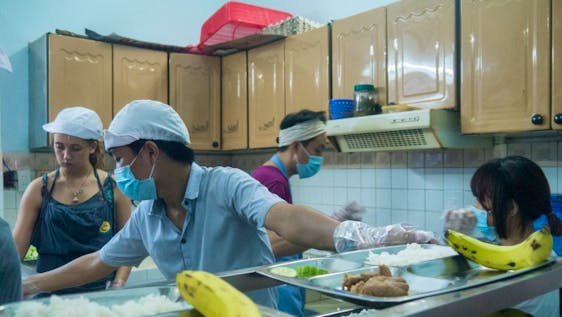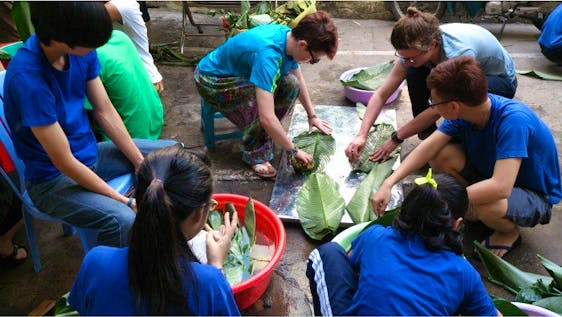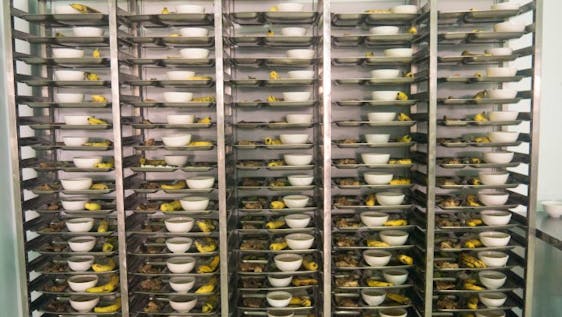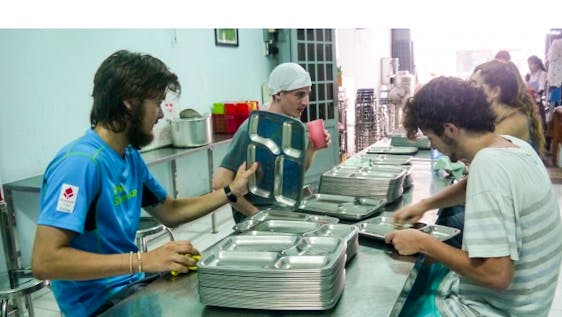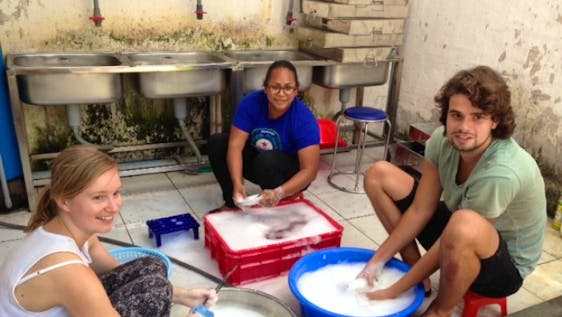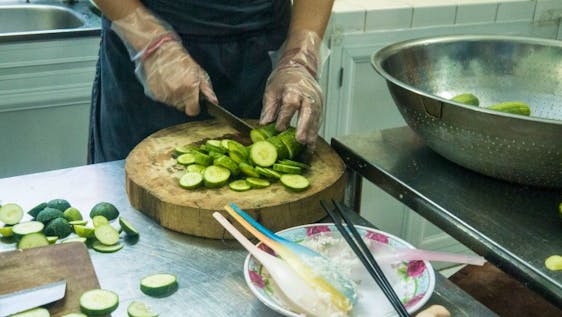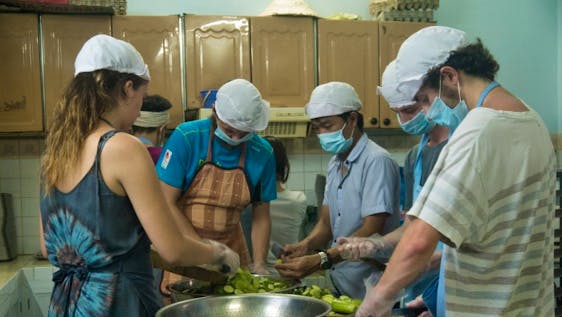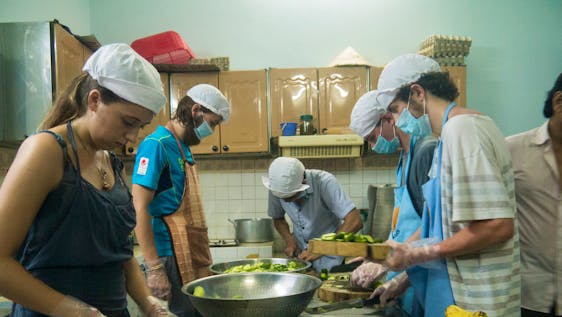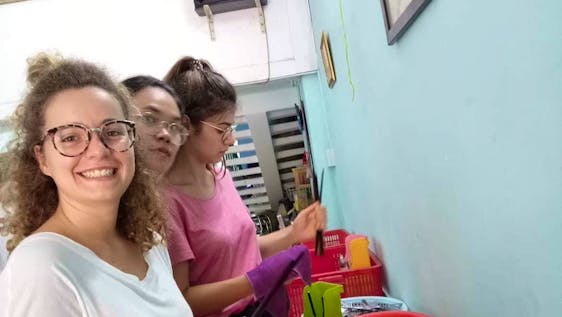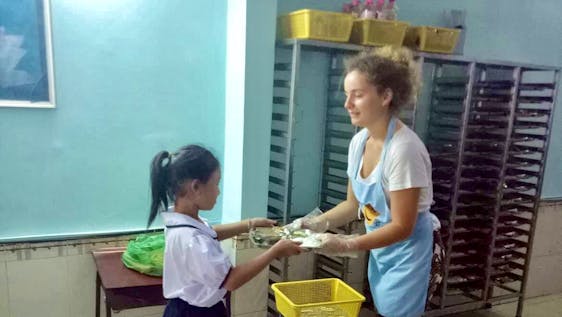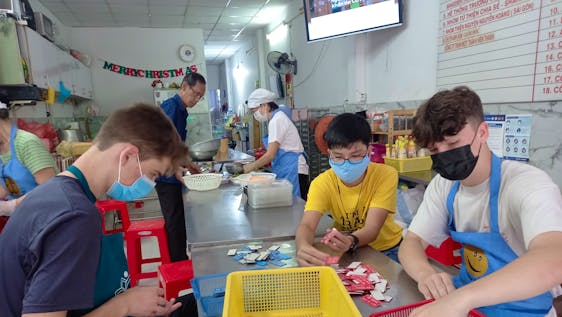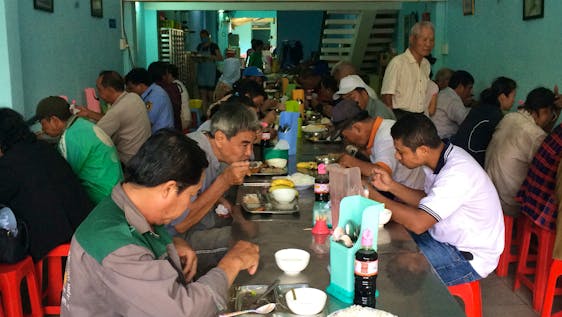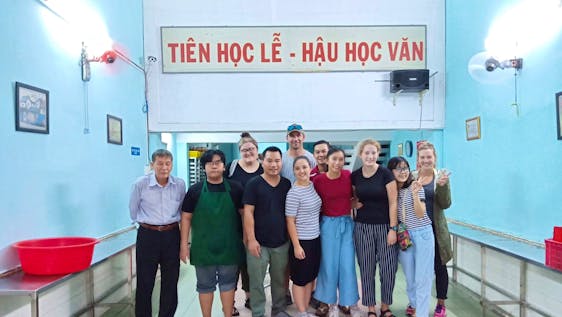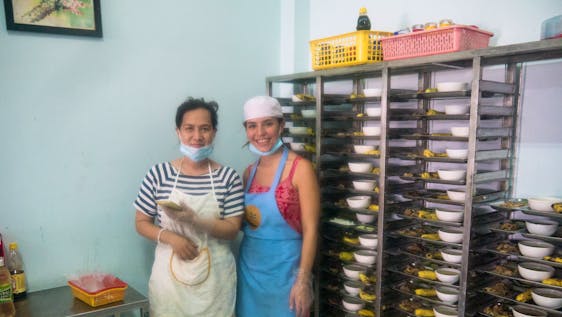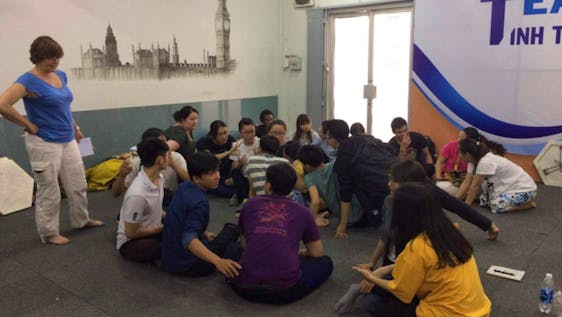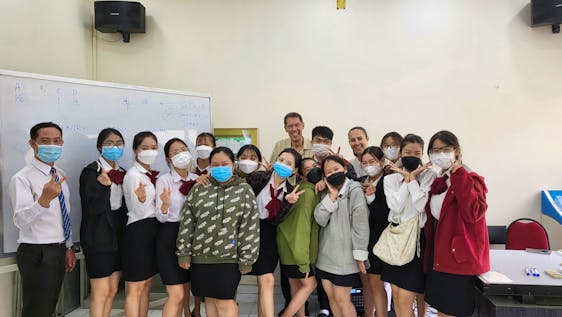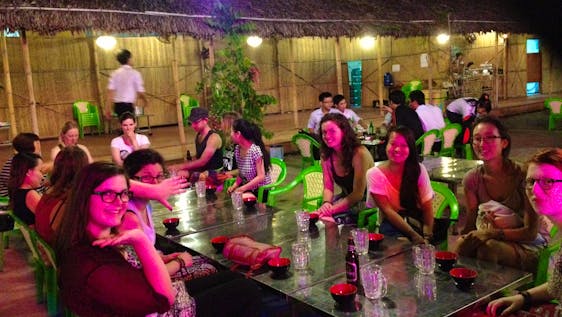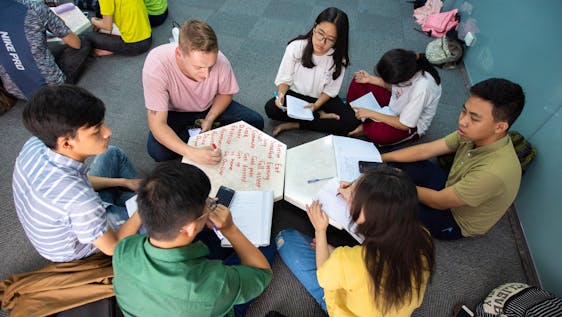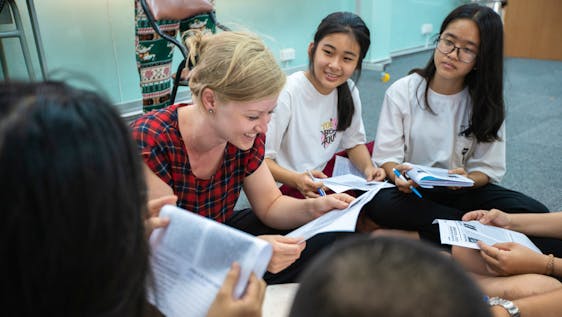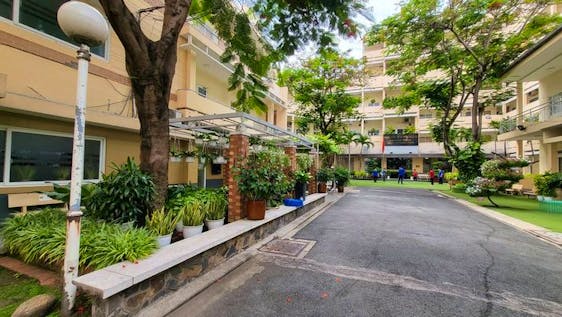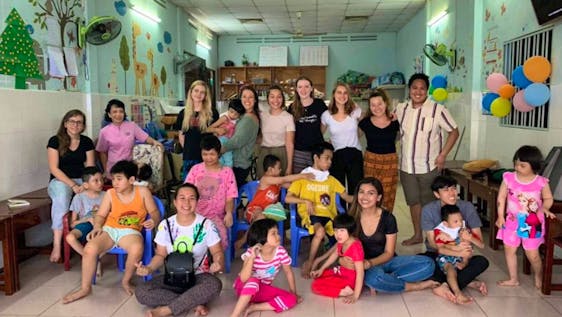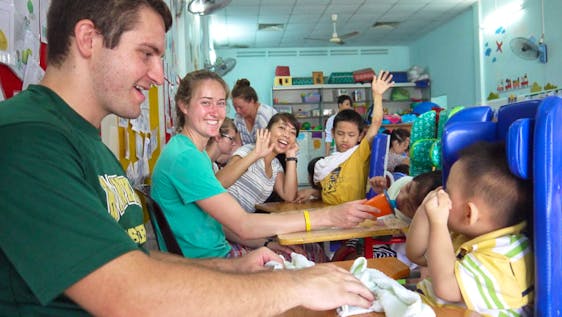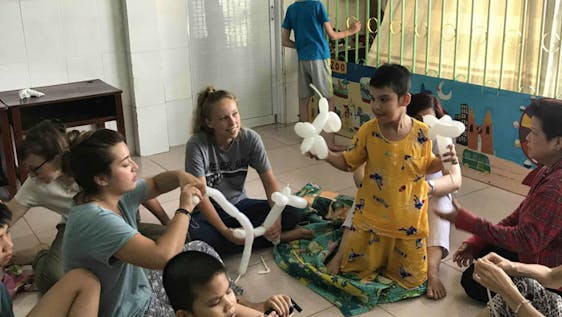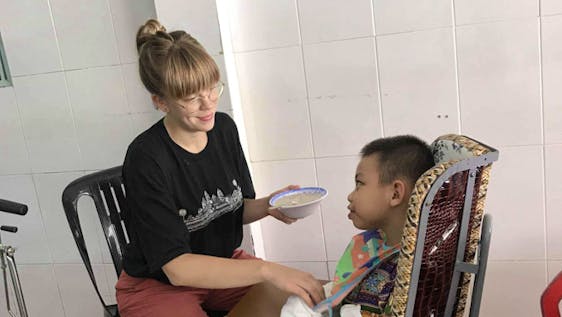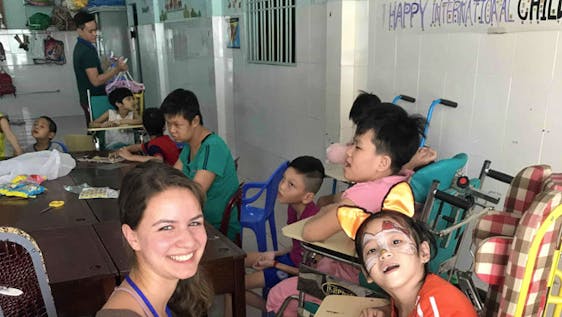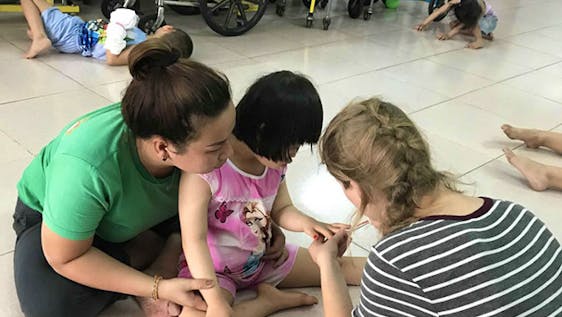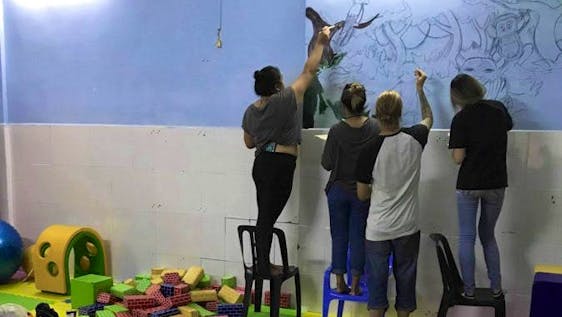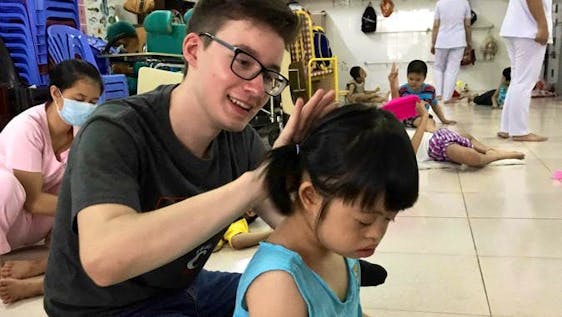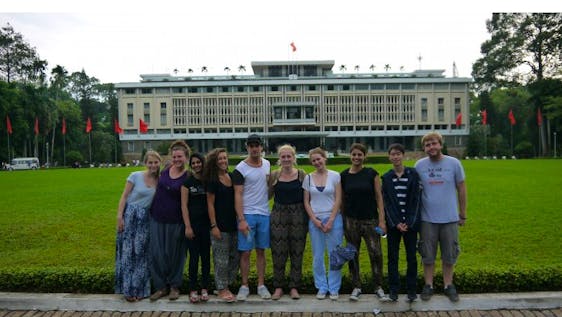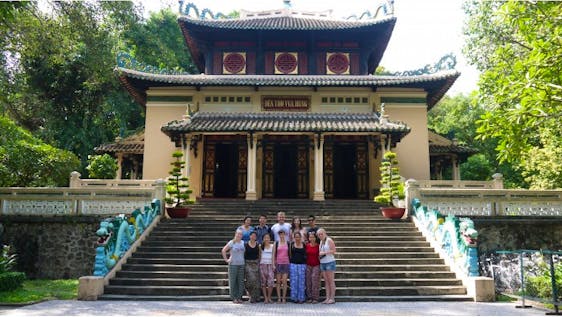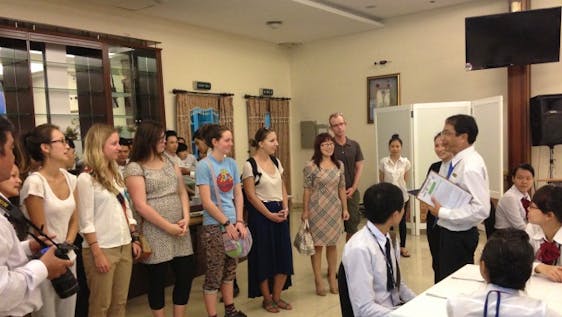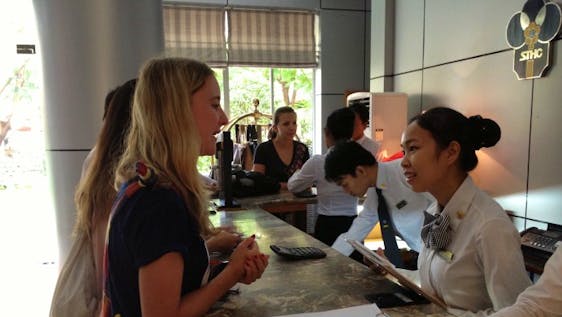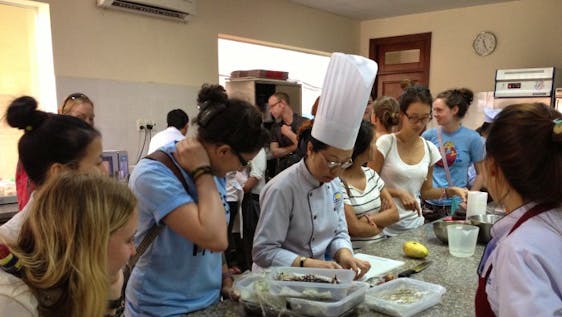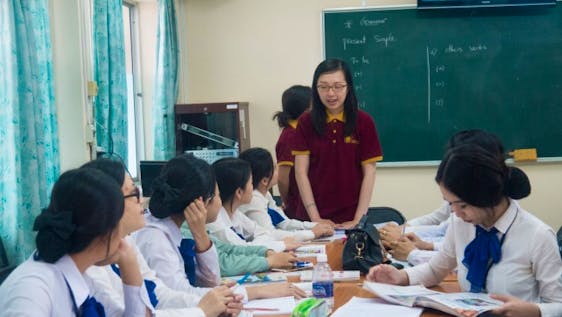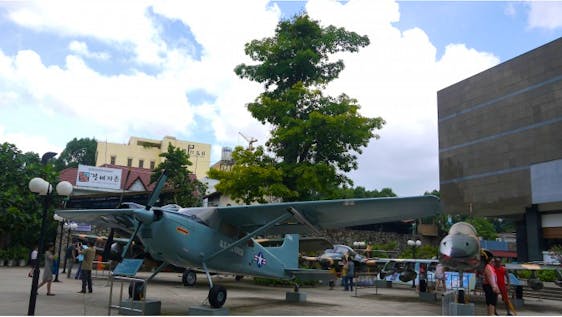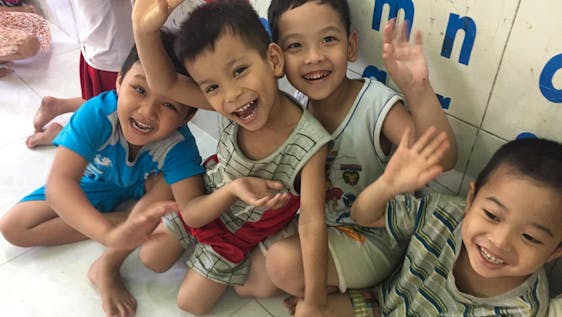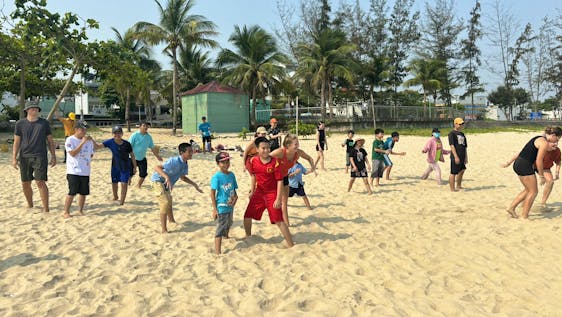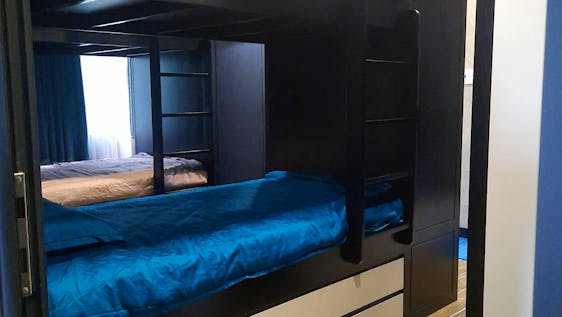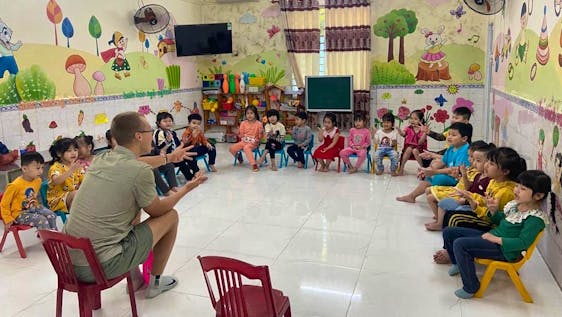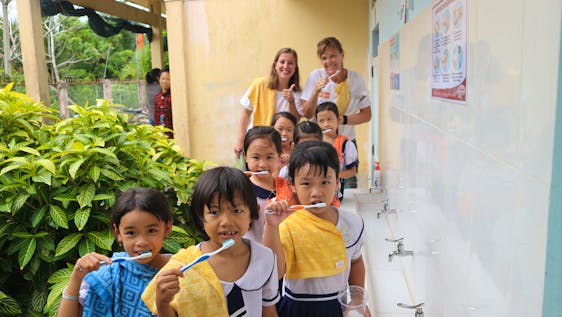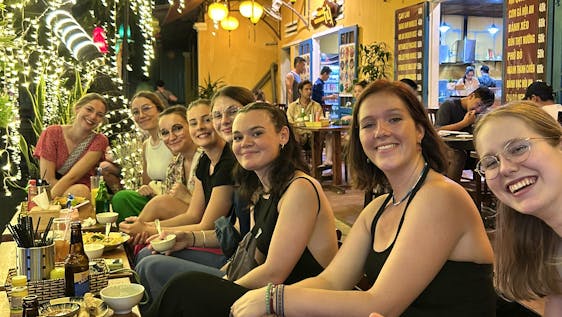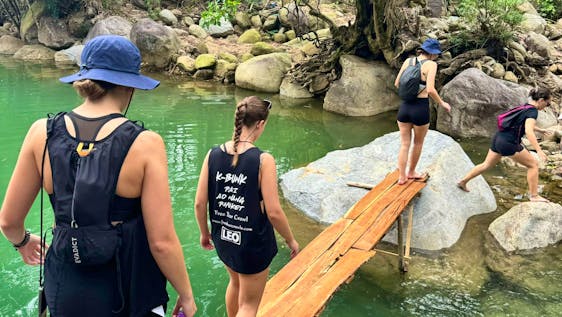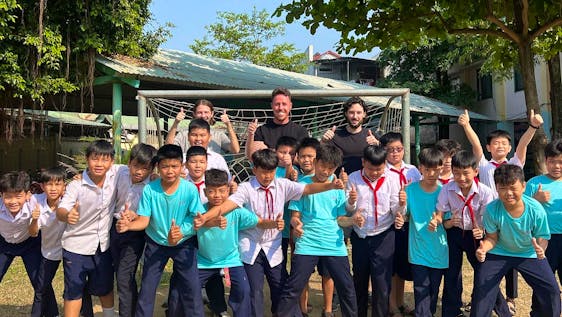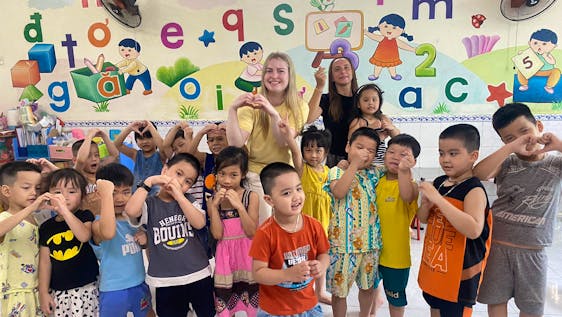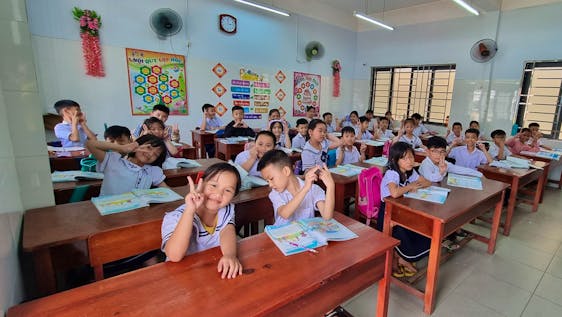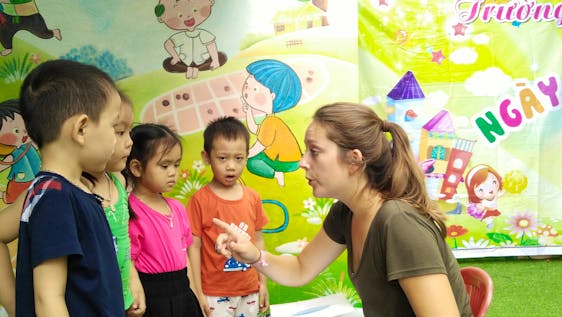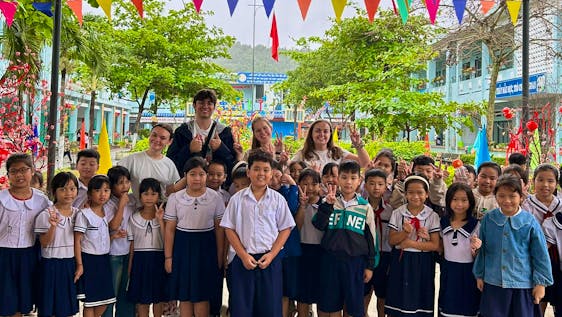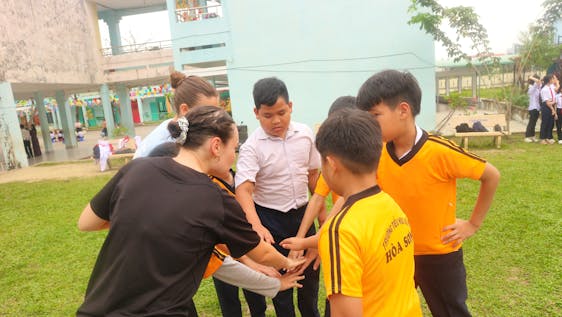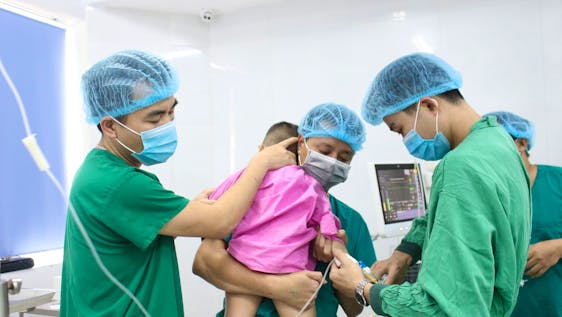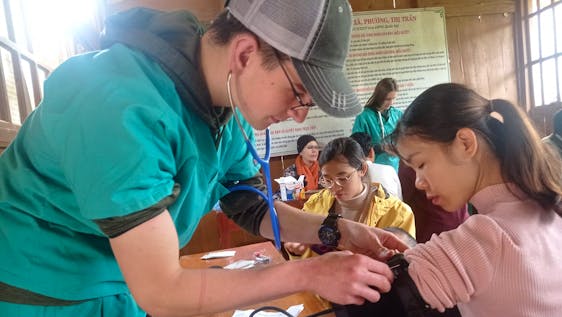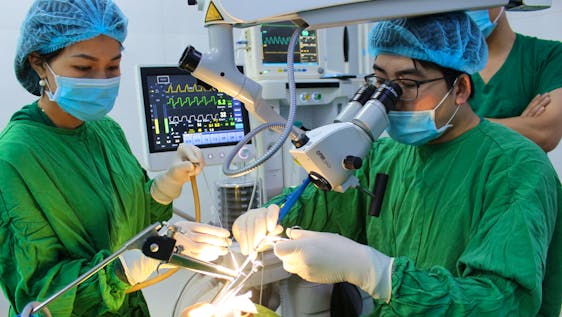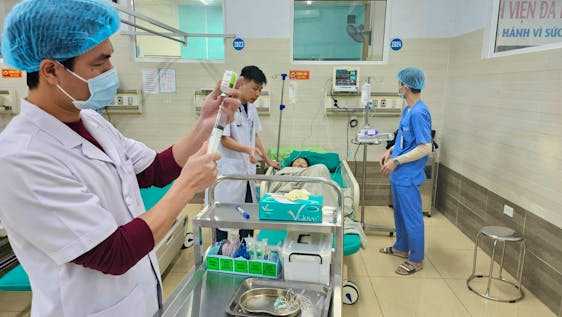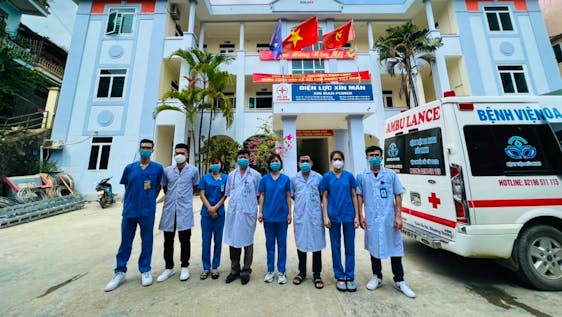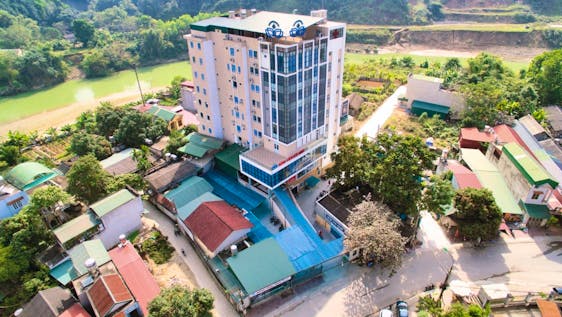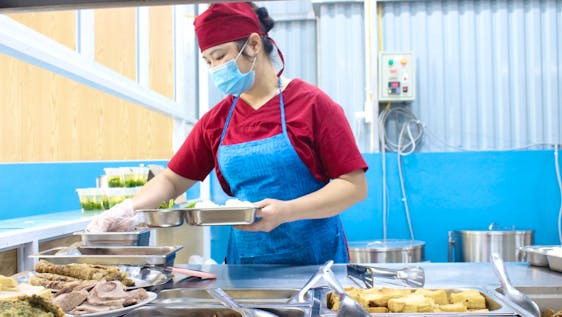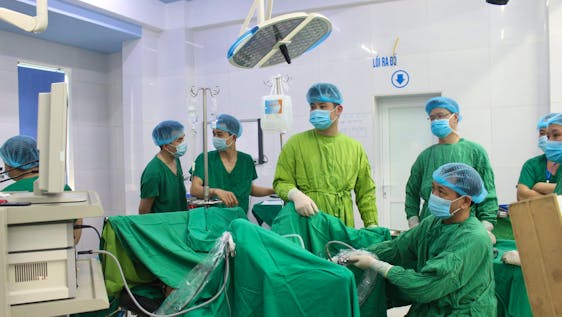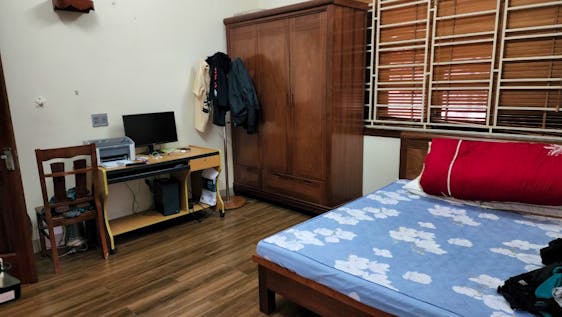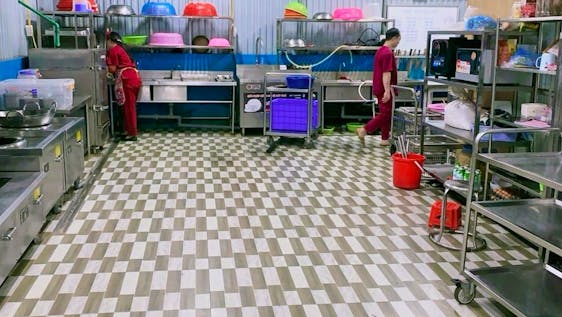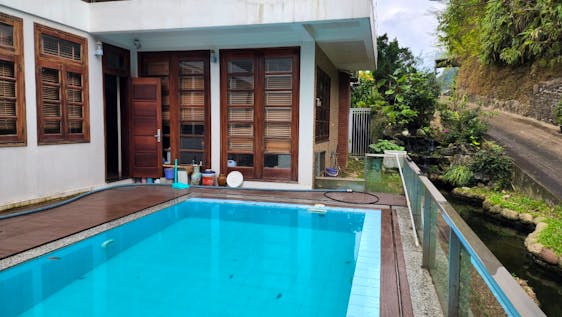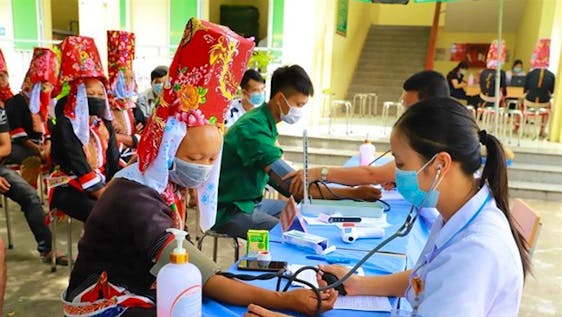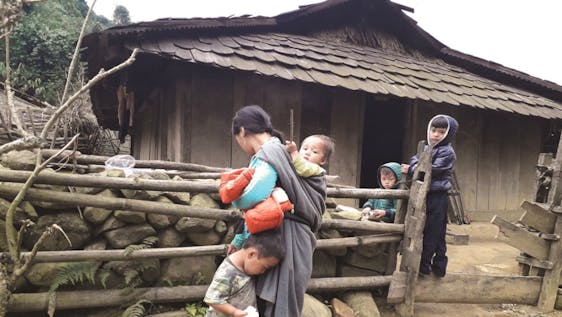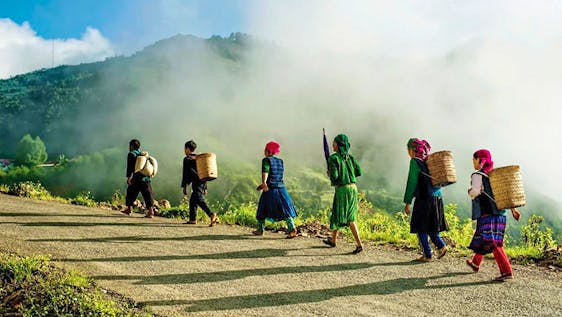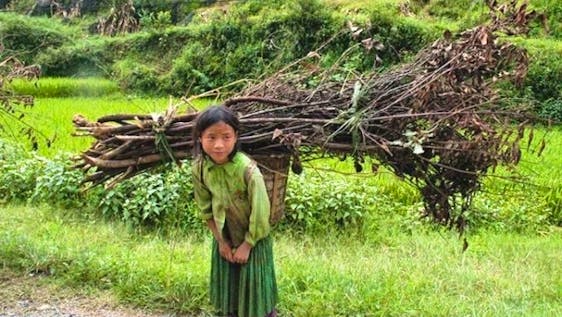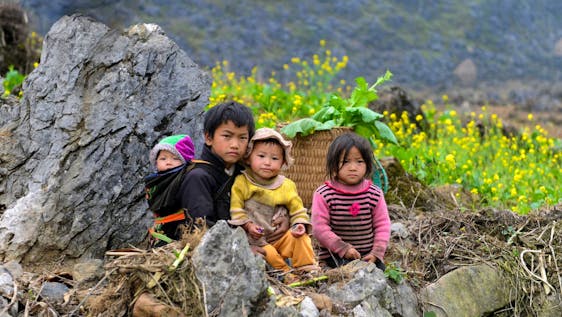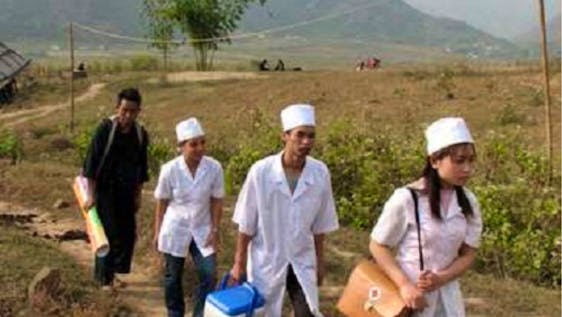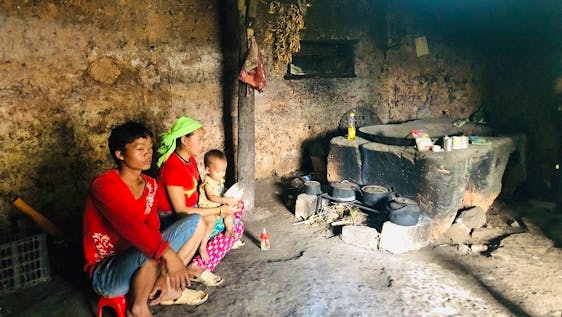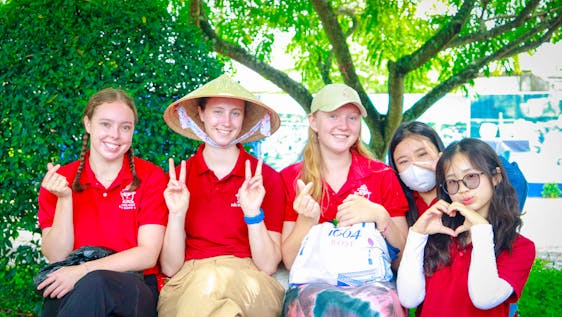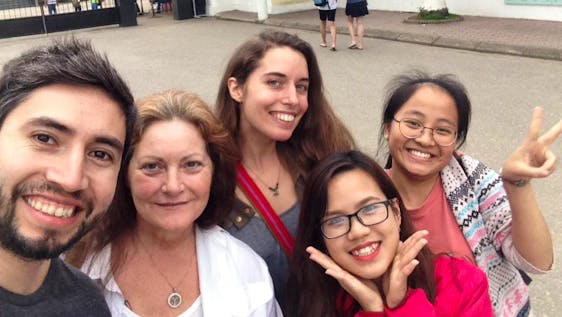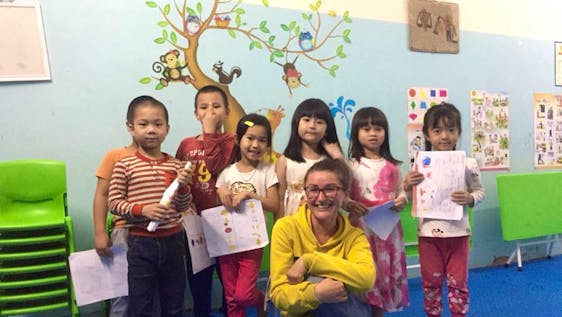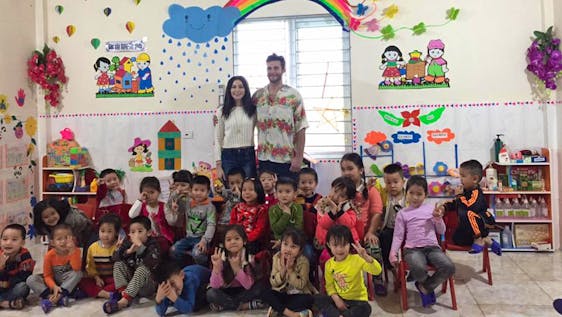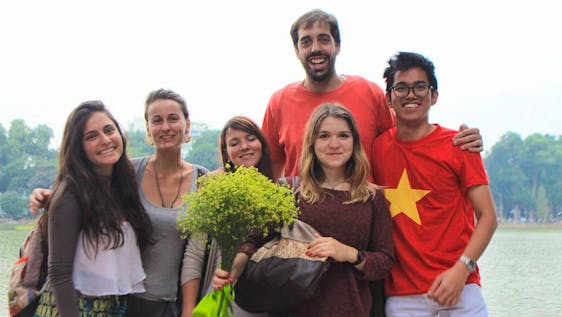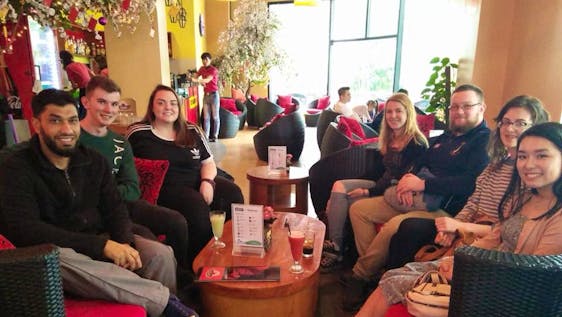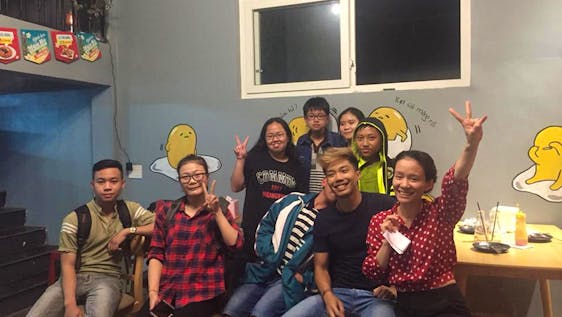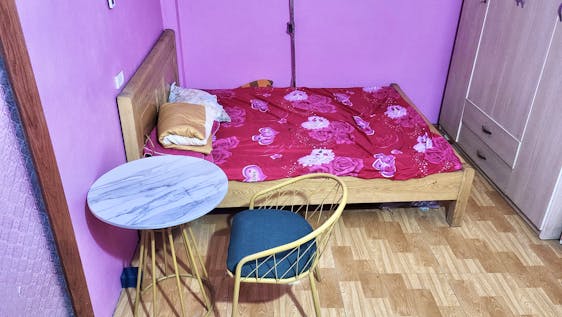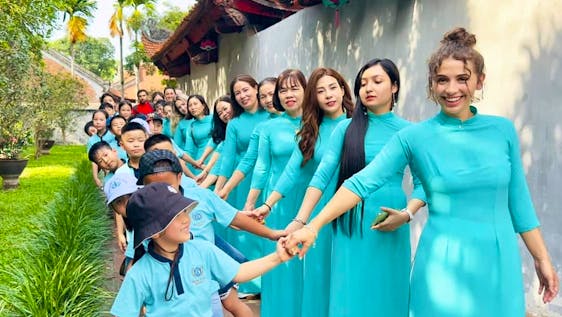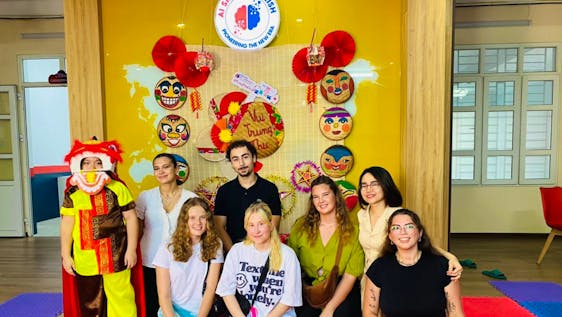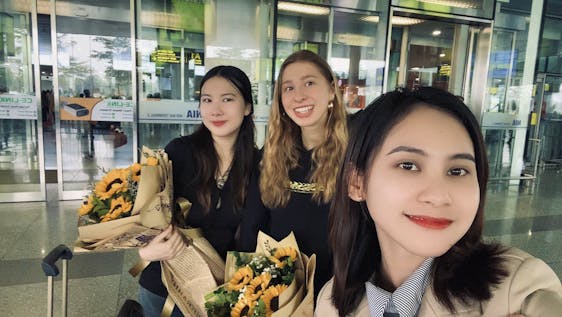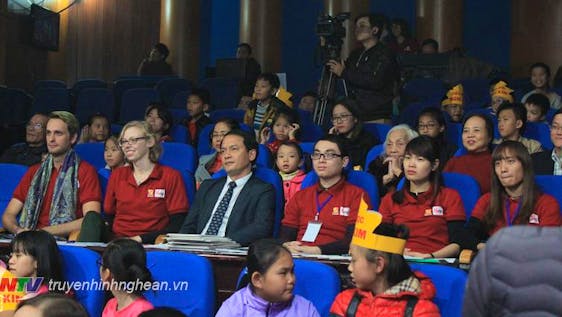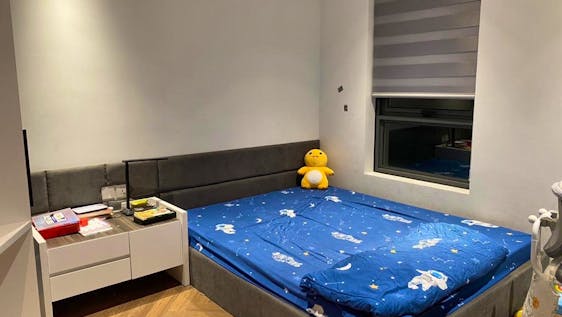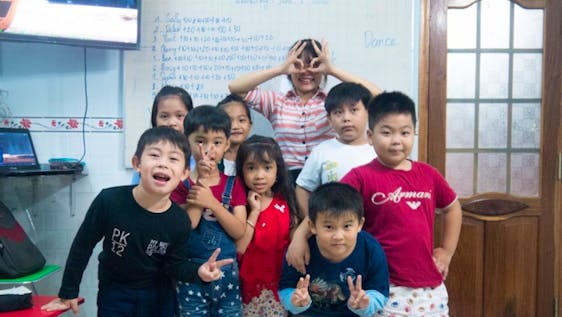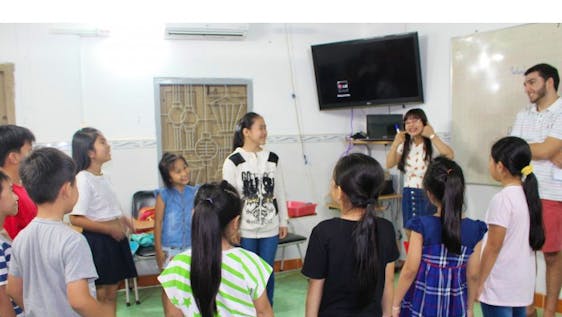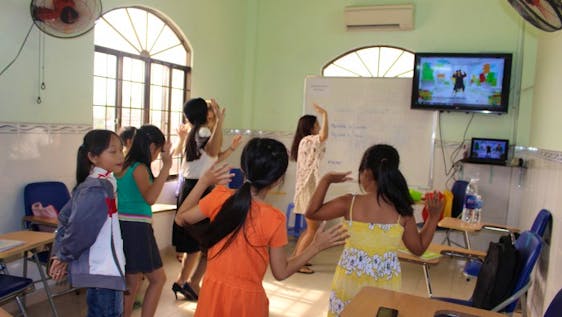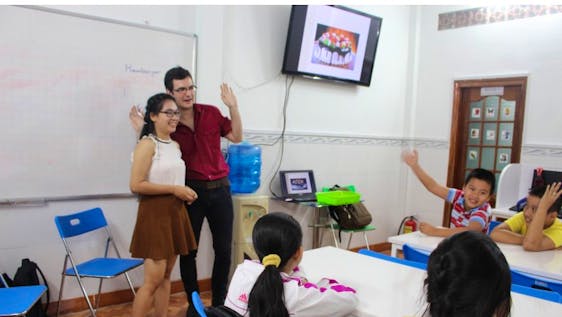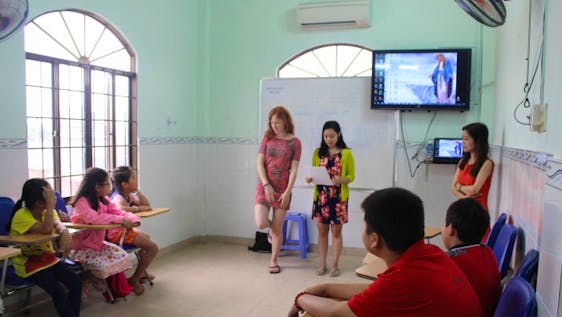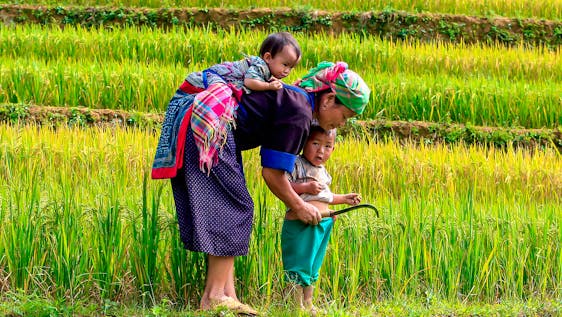Volunteer in Vietnam


Volunteer Opportunities in Vietnam
You have thought about volunteer work in Vietnam for a while, but you need some more information to make a final decision? If you are looking for a place rich in culture, great beaches, awesome weather and tasty cuisine abroad, then look no further! Vietnam has struggled with high levels of poverty in the past but it is now considered a middle-income country with booming metropolises such as Hanoi and Ho Chi Minh City. Vietnam still has a lot of work ahead as they battle problems like corruption, economic inequality, and improving government policies.
This is where your journey as an international volunteer in Vietnam begins! By lending your helping hand to one of the many volunteer programs in Vietnam, you can be a great help to the locals and learn new things at the same time. No matter where your interest lies and what your skills are, whether it’s teaching English in Vietnam or contributing to medical projects, there will definitely be a project that’s perfect for you.
Volunteer work in Vietnam
Before you decide to volunteer in Vietnam, you should think about what you expect from a volunteering project. Whether you'd like to work with children or adults, do you want to be teaching English Vietnam or other community work? If you’re excited about big cities like Hanoi or prefer residing in remote areas, there is something for everybody. We have plenty of volunteer programs in Vietnam in store for you. The right project is just a click away.
English teaching projects in Vietnam
Primary education is compulsory in this country, and it has helped the country's high level of literacy. The literacy rate is around 90.3% (and can reach 94% among children). However, there are some groups of children that do not have easy access to quality education. These are:
- Children in rural and poor areas
- Children that belong to ethnic minorities
- Children with disabilities
Volunteer by teaching English in Vietnam and you will be working with children of all ages and supporting them at school. You will primarily be teaching English, helping them with their homework and creating after-school activities. If you have good skills in mathematics, IT or other subjects, you can teach those as well. Choose to work for a project in a big city like Hanoi and Ho Chi Minh City if you like the buzz of a big city. If a quieter setting is more your thing, you can opt to teach in more rural areas in a small village where you’ll experience a very rudimental way of life.
Students studying education will gain invaluable practical experience by teaching English in Vietnam. Those who gain approval from their university can even see their volunteer experience as an internship and gain study credits. More seasoned teachers eager to spread their wings will be in for a life-changing teaching adventure in Vietnam.
Volunteering for biodiversity and its conservation
Vietnam has to deal with many environmental issues due to the effects of the Vietnam War when the US dropped more than 260 million cluster bombs on the country. Another problem that affects the environment is the country's rapid industrial growth. The three biggest issues Vietnam is facing at the moment are:
- land and forest degradation
- massive pollution
- improper management of waste in cities like Ho Chi Minh City or Hanoi
Conservation volunteer programs in Vietnam will need your help with the support of reforestation efforts, planting new trees and conducting research. You could also work on organic farms and protect endangered areas from destruction.
Medical and healthcare projects
The general medical quality in Vietnam is good but there is a constant struggle with poverty and inequality. That's why malnutrition is still a common phenomenon in the country. The government can only subsidize around 20% of health care expenses; the individuals need to pay the rest themselves. In addition, almost half of the population has no access to clean water, especially those outside the city. This promotes infectious diseases such as:
- Malaria
- Dengue Fever
- Typhoid
- Cholera
As a medical volunteer in Vietnam, you will shadow and support doctors and nurses during their daily tasks. Depending on your previous knowledge, you might be able to assist during more complex treatments as well. This is your chance to support a medical project, to provide free healthcare and to improve a country’s overall living situation.
Cost of living
The suggested daily budget for living as an international volunteer in Vietnam is between US$ 12 and US$ 37. This is an estimate made considering the average price of some of the services you might need and things you might want to buy. It gives you a general overview of how much things cost when you’re abroad, so you can be prepared and save the money you will need.
Additional costs you should consider will be:
- program fees
- flight tickets (find cheap flights to Vietnam)
- travel insurance (find your travel insurance)
- fees for your visa
- personal expenses
An exemplary overview of living costs in Vietnam (in US$, for one person) is:
Things you should know before volunteering in Vietnam
Going abroad and traveling to a foreign country always includes some issues and precautions that need to be taken into account. Some of the following tips might be new to you and help you when traveling as an international volunteer in Vietnam.
Safety & travel precautions
The safety standards for a volunteer in Vietnam differ from what we are used to in western countries, so make sure to follow these tips to stay safe:
- You should exercise common sense and always be aware of suspicious behavior as street crime and harassment can occur in larger cities, e.g. Hanoi.
- You should expect to witness a lot of traffic accidents in Vietnam. If you are considering driving a car or a motorbike, be aware that it will be very different from driving a car back home.
- We recommend that you use airport taxis, pre-booked hotel shuttles or taxis from reliable taxi stations only.
- If you are visiting any bars, discos or places of the sort, pay close attention to the preparation of mixed alcoholic drinks to prevent your drink from being spiked. This advice goes especially for women traveling alone!
- Transportation of illegal drugs is a major No-Go! Please exercise common sense, and take this advice seriously. This is amongst the most offensive crimes in Vietnam with very severe penalties!
Medical advice
There are no compulsory vaccinations required for doing volunteer programs in Vietnam, but the US based health protection agency CDC highly recommends to renew your childhood vaccinations if necessary. Those are:
- Diphtheria-Tetanus-Pertussis
- MMR
- Chickenpox
- Polio
It is also a good idea to cover against food and waterborne diseases, including Typhoid and Hepatitis A. Additionally to this, consider to get vaccinated against Hepatitis B, Japanese Encephalitis and Rabies, if you are staying for volunteer work in Vietnam a longer period.
It is recommended to start vaccinations four to six weeks before leaving home. Vietnam is also endemic for Malaria and Zika, and risk of transmission can occur in many regions of the country.
Culture and religion
Around 73% of the population in Vietnam follows the Vietnamese folk religion, which is highly influenced by the doctrines of Confucianism and Taoism from China. Another important religion is Buddhism, which is followed by 12% of the population in Vietnam. Around 8% of Vietnamese are Christians (mostly Catholics), and around 3% aren't affiliated with any religion. Officially though, the Socialist Republic of Vietnam is declared an atheist State, according to the communist government.
There are some cultural rules and official laws that are important for you to know and respect during your time at Vietnam volunteer programs, so please read the following points carefully:
- Prostitution is illegal and so is pornography. So stay away from both whilst you're in Vietnam!
- Sharing a hotel room with a person of the opposite sex is strongly frowned upon!
- Avoid public displays of affection.
- Laws for women are stricter than for men. Women aren't allowed to wear clothes that are too revealing. In some cases, women risk being deported or spend a night in jail for not considering these rules.
- Restrain from taking pictures of military installations. You risk getting arrested!
Packing essentials
Your packing list might change slightly depending on when you are going to travel to Vietnam and what kind of work you will be doing abroad, but these are some absolute essentials you should not forget to pack:
- Bring photocopies of your important travel documents like passport, travel medical insurance information and visa, and keep them safe at your accommodation.
- Wear long sleeves to protect you from the sun and from insects.
- Keep enough cash with you. You cannot use credit cards in a lot of restaurants and stores.
- Carry a money belt with you to keep your money secure.
- Make sure to pack lightweight clothing as well as a rain jacket. Also, walking shoes are a must as you may find yourself walking several kilometers a day.
- Women should also pack tampons - if they use them - because they are not easy to find in Vietnam.
- Long pant pajamas and insect repellent are necessary to protect you from mosquito bites at night.
Who can volunteer in Vietnam?
As you will have noticed by now, there are many different volunteer programs in Vietnam that expect different skills and abilities from their international volunteers. While you can find the specific requirements for each project on their program page, here are some general requirements that apply to most volunteer programs in Vietnam:
- You need to be at least 18 years old for most of the volunteer projects. When in doubt, we advise you to get in contact with the local project coordinator, as in some projects you can also volunteer when you're 16 years old.
- You need to have basic English skills to join a volunteer project in Vietnam. When you’re planning on teaching English, your skills have to be at least intermediate.
- Depending on the project you're interested in, you might need to provide a criminal background check and a health declaration.
Do I need a visa to volunteer in Vietnam?
You have made it to the last section of this guide, which is another really important aspect while planning your volunteer work in Vietnam: getting your visa.
Please consider that the following information is based on a best practice approach, which has been made according to the best of our knowledge and in cooperation with several volunteer programs in Vietnam. That's why you should please make sure to discuss your visa requirements with your project’s coordinator on Volunteer World. If in doubt, we also recommend getting in touch with the Vietnamese embassy or consulate in your country.
General immigration information
There are some general requirements you should comply upon your arrival in Vietnam:
- Please check the current validity of your passport. The passport should be valid at least 6 months after your expected return home date.
- Make sure your passport has at least two blank Visa pages. Vietnam requires that you have adequate unused pages in your passport, allowing for any necessary stamps upon arrival and departure.
- Please check if a transit visa is required for any connections.
- Make sure to be in possession of a valid return ticket for your travel home.
Best practice for volunteers
The visa regulations for Vietnam have been changing frequently over the past years and most of the changes have only had a limited duration, which is why it is hard to give reliable information on this topic.
There are different ways for you to receive a visa. For a stay up to 30 days, Vietnam has recently introduced the E-visa for the citizens of these countries. You can simply fill out the online application form, pay the E-visa fee of US$ 25 and your application will be processed within three working days. You can check the status of your application online and once you have been approved, please print the E-visa and have it ready with your passport when you enter/ exit Vietnam.
If you will be staying for longer than 30 days, our trusted volunteer organizations recommend applying for a tourist visa, which is valid for up to 3 months and accepted for volunteers as well. To make this step as easy as possible, you can find the application form right here. Make sure to submit the filled out application form to the closest Vietnamese Embassy or Consulate. They will provide you with all further information and give you a checklist of documents that need to be submitted.
If you find yourself in an emergency situation and you require a last-minute visa, there is an option to receive a Visa on Arrival at the international airports in Hanoi, Da Nang, and Ho Chi Minh City. You still need to apply for an online clearance beforehand, which can take a minimum of 4 hours and up to three days.
Please note that many websites that advertise organizing the Visa on Arrival for tourists are not reliable sources, so do not risk falling for a scam and go the official way instead.
 Hotspots
Hotspots
 Hanoi
Hanoi
 Education
Education
 Volunteer and Travel
Volunteer and Travel
 Voluntourism
Voluntourism
 English Teaching
English Teaching
 Language Course
Language Course
 Intern Abroad
Intern Abroad
 Special Needs
Special Needs
 Psychology Internship
Psychology Internship
 Community
Community
 Ho Chi Minh
Ho Chi Minh
 Childcare
Childcare
 Physical Therapy Internship
Physical Therapy Internship
 Healthcare
Healthcare
 Social Work
Social Work
 Nutrition and Food
Nutrition and Food
 Culture and Arts
Culture and Arts
 Medical Training
Medical Training
 Pediatrics Volunteer
Pediatrics Volunteer
 Youth Teaching
Youth Teaching
